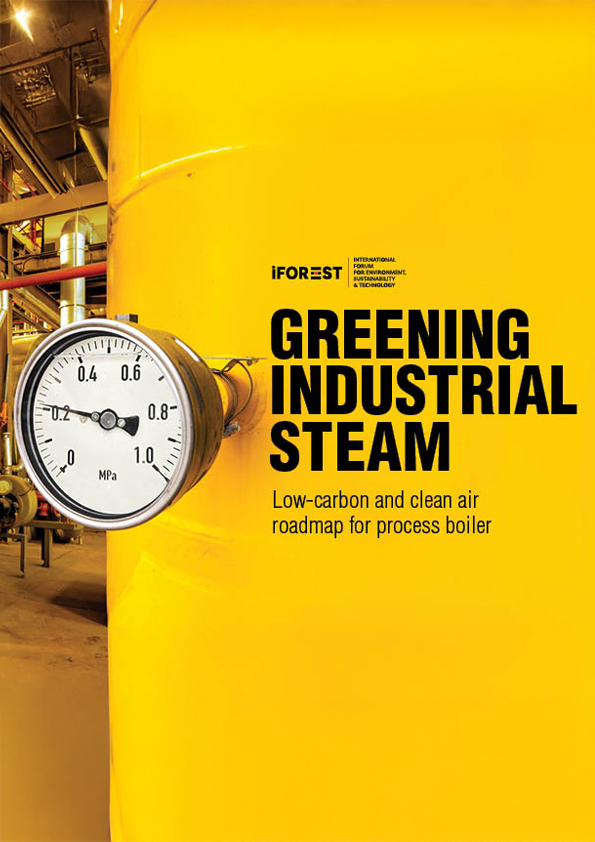
National report Greening Industrial Steam: Low-Carbon and Clean Air Roadmap for Process Boilers
This is the first comprehensive national study on India’s industrial process steam. The report presents a detailed assessment of boiler stock, steam generation, energy use, and emissions across major industries and states. Boilers in India’s factories release 182 million tonnes of carbon dioxide every year, which is about 7 per cent of the country’s total greenhouse gas emissions and over a quarter of all industrial emissions. The study highlights the significant contribution of the current boiler fleet to industrial air pollution and includes a techno-economic analysis of process steam generation. It also presents a strategic roadmap for transitioning to cleaner, more efficient steam systems through energy efficiency measures, technology upgrades, and the adoption of cleaner fuels. Additionally, the report outlines key policy interventions required to support this transition, aligning with India’s clean energy and air quality objectives.
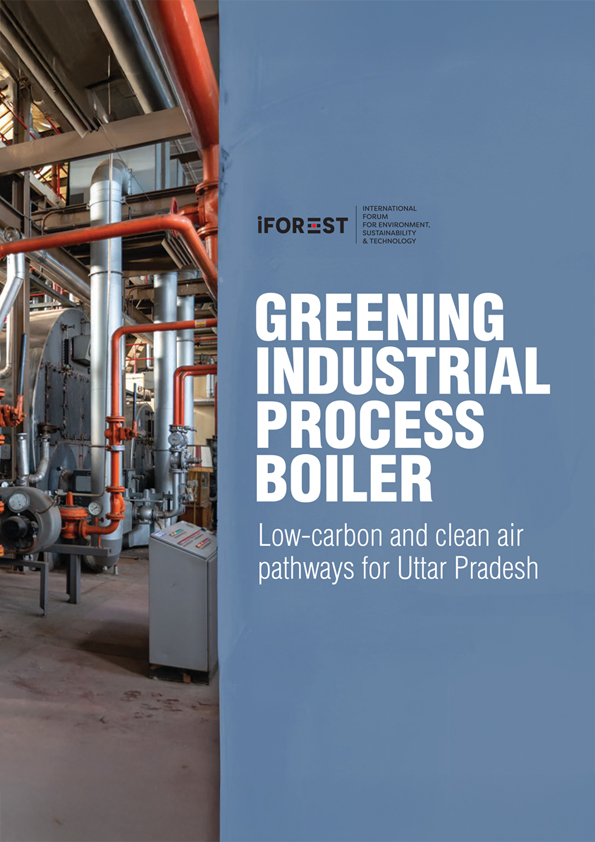
Greening Industrial Process Boiler: Low-carbon and clean air pathways for Uttar Pradesh
This report provides a deep dive into Uttar Pradesh’s stock of 2,798 boilers— the third largest in the country. It found that over 15% of the boilers are over 25 years old, and only 40% of their capacity is utilised. A notable trend identified is the shift from fossil fuels, particularly coal, toward biomass. The report recommends the promotion of cleaner biomass technologies and the strengthening of regulatory and institutional frameworks to ensure a low-pollution future.
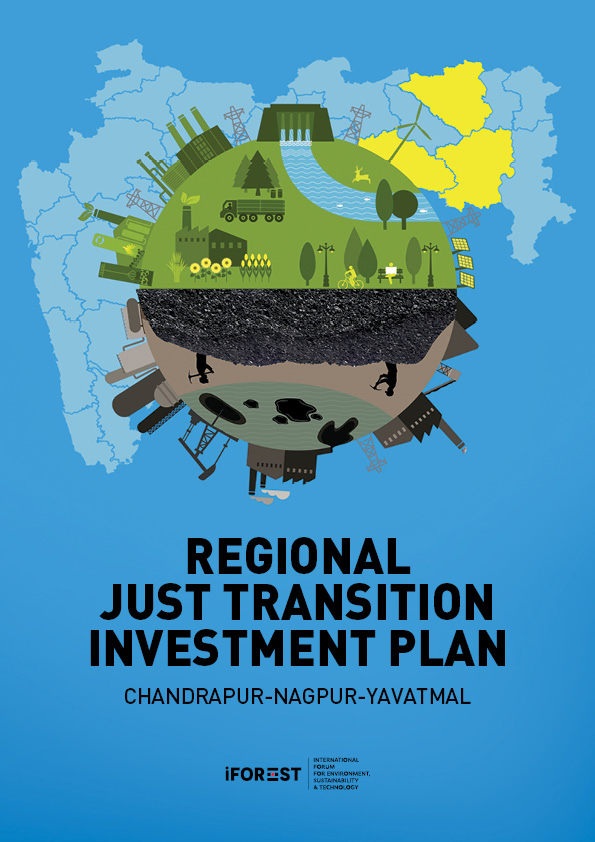
Regional Just Transition Investment Plan: Chandrapur-Nagpur-Yavatmal
Regional Just Transition Investment Plan: Chandrapur-Nagpur-Yavatmal— is the first of its kind in India. It presents a 10-year roadmap to transform Maharashtra’s largest energy cluster into a hub for green energy and green industry. The plan aims to enable a just and inclusive energy transition in alignment with the state’s climate, energy, and development goals. It identifies key Economic Development Nodes to attract green investments, scale renewable energy, and generate new local employment.
The report highlights the quantum of potential investments and outlines the broader macroeconomic benefits for the region.

Rooftop solar potential in Assam
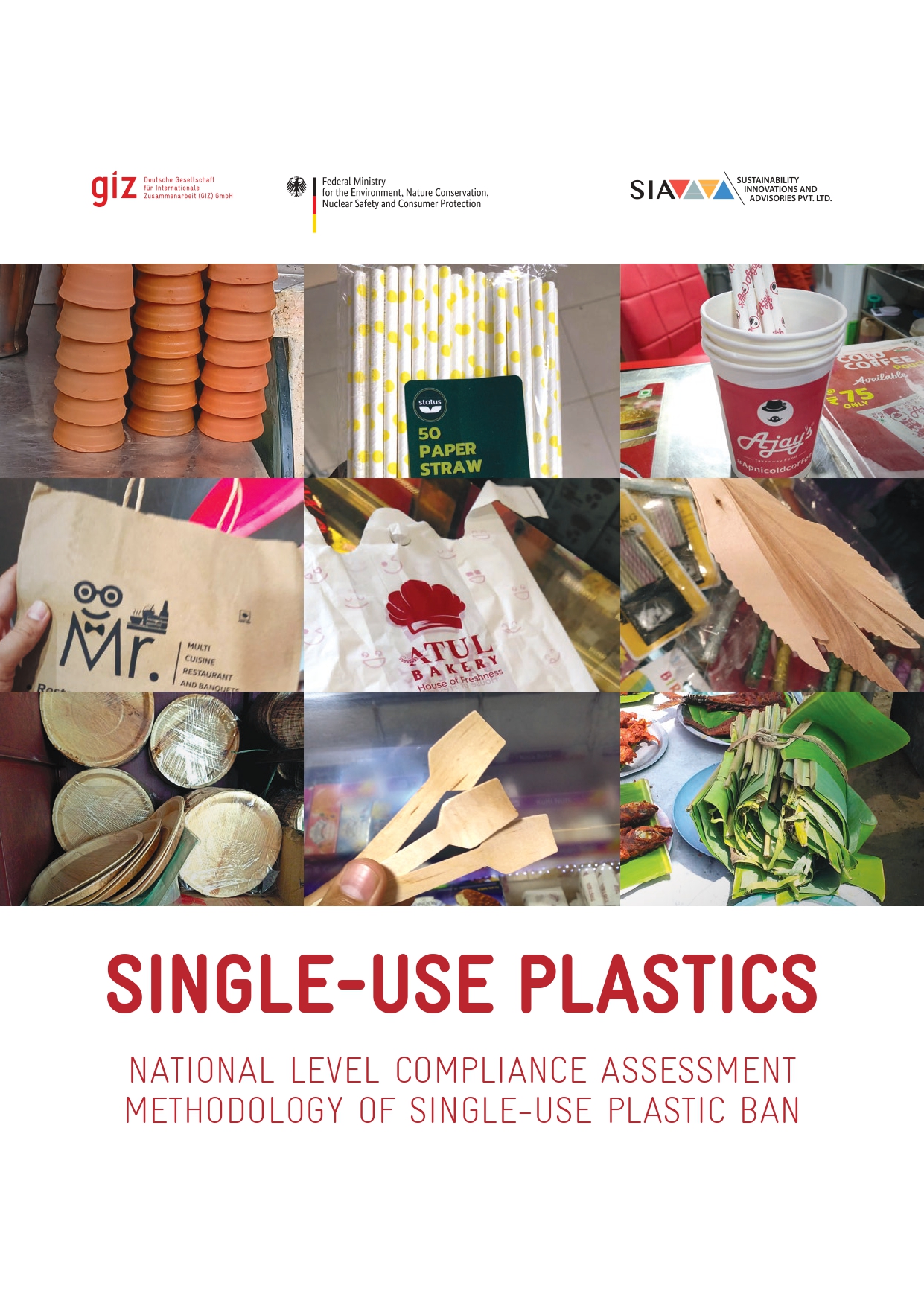
National Level Compliance Assessment Methodology of Single-Use Plastic Ban
The report provides a standardized methodology that can be employed to evaluate the compliance status of the ban on Single-Use Plastics (SUPs) at the district, city, and state levels. The methodology has been pilot tested in 20 cities in India with varying profile and nature, and provides a baseline of SUPs in the selected cities, enabling a comparison of the compliance status of the ban on SUPs in the future. The suggested methodology is easy to implement and can be adopted by relevant agencies, including regulatory bodies and local authorities, to assess compliance with the SUP ban in their jurisdiction. The Central Pollution Control Board (CPCB) has used the same methodology to draft a SOP for the Characterization and Assessment of plastic waste generation.
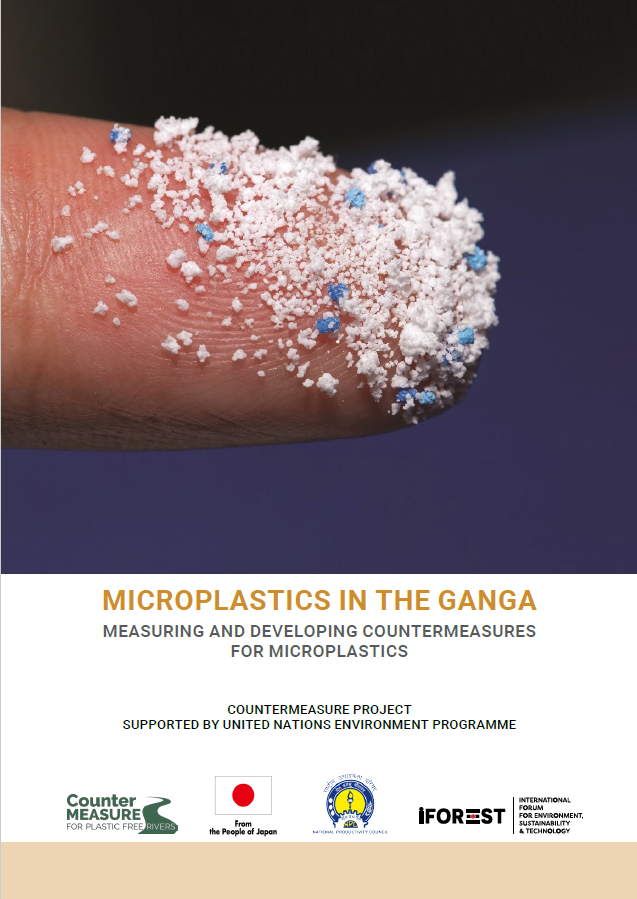
Technical briefs on Microplastics
- This technical brief series presents research findings, analysis and policy recommendations aiming to examine riverine plastic pollution along river Ganga. Technical briefs in this series includes.
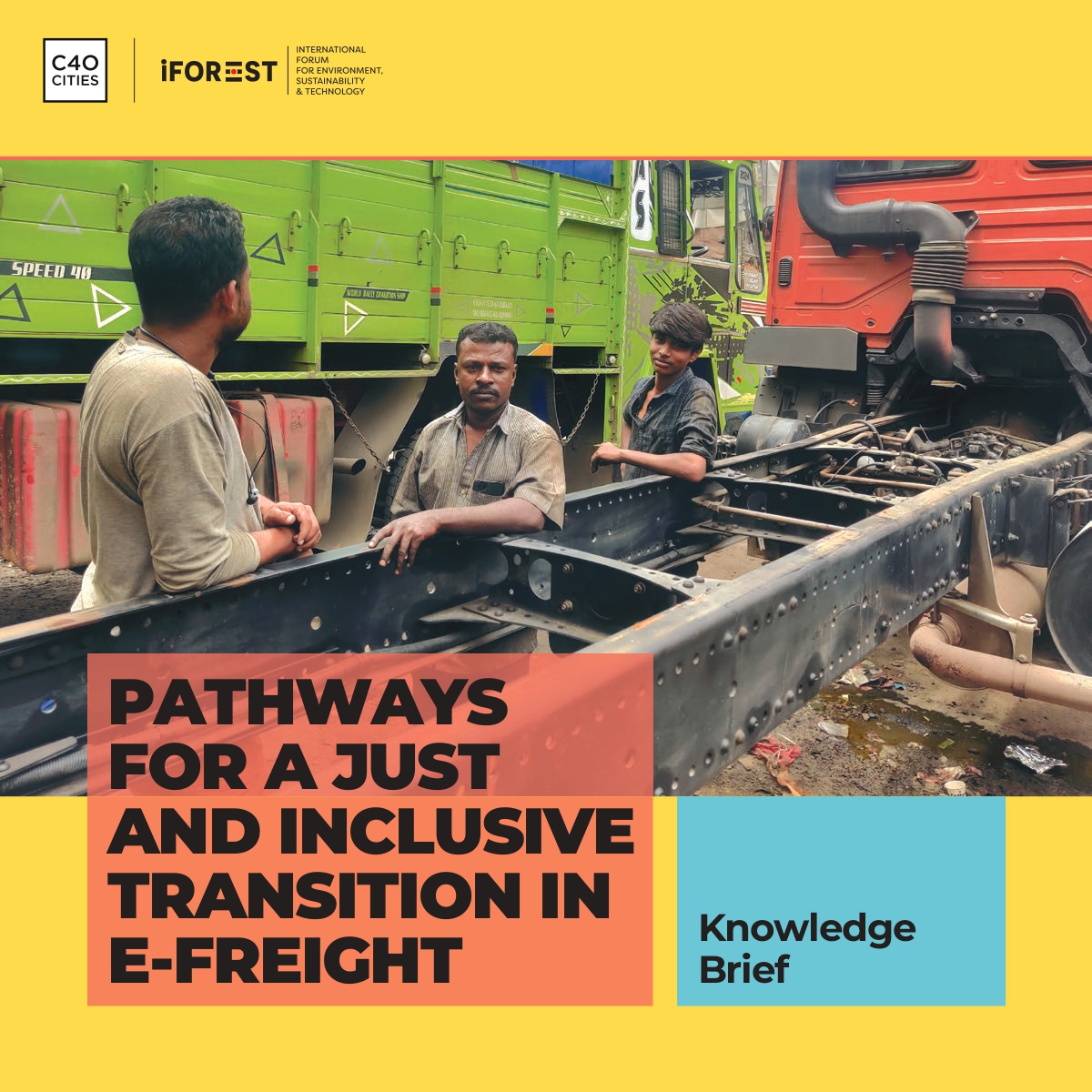
Pathways for a Just and Inclusive Transition in E-Freight
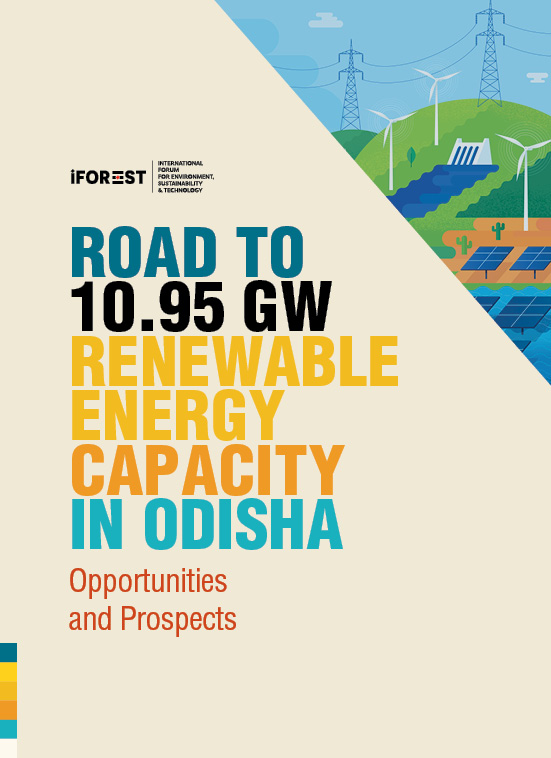
Road to 10.95 GW Renewable Energy Capacity in Odisha
Renewable energy is at the forefront of Odisha’s ambitious energy sector investment plans. Of the 10.95 GW of RE capacity planned to be added by 2030, 7.5 GW is proposed to be achieved through solar projects, followed by 2 GW by wind, and remaining by large hydro, small hydro and pump storage projects. To achieve the 2030 target, Odisha needs to develop an additional 9.6 GW of RE capacity. This requirement is expected to increase further with emergence of pumped storage projects and new green hydrogen initiatives, which will drive demand for clean energy sources.

Factsheet: Odisha GHG Emissions Profile 2022-2023
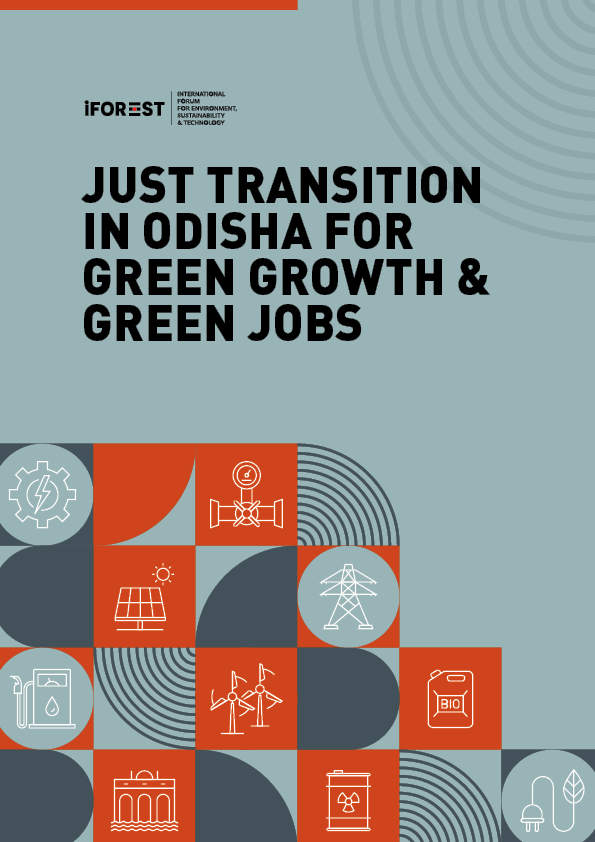
Just Transition in Odisha for Green Growth & Green Jobs
The report Just Transition in Odisha for Green Growth & Green Jobs highlights Odisha’s role in India’s green transition, given its significant coal, iron, and other mineral resources. Recognizing Odisha’s high industrial growth and substantial greenhouse gas (GHG) emissions, the report underscores the need for a just transition that promotes sustainable economic development and job creation. It presents a methodology for assessing transition costs for specific sectors such as coal mining, coal-based power, and high-emission industries like steel, cement and aluminum. The report outlines strategies for sectoral transition, such as decommissioning coal mines, transitioning to renewable energy, economic diversification, skilling initiatives, and promoting green industries. Recommendations include repurposing mining and industrial lands, enhancing the skilling ecosystem for green jobs, and deploying funds like the District Mineral Foundation and coal cess to support local transition efforts.
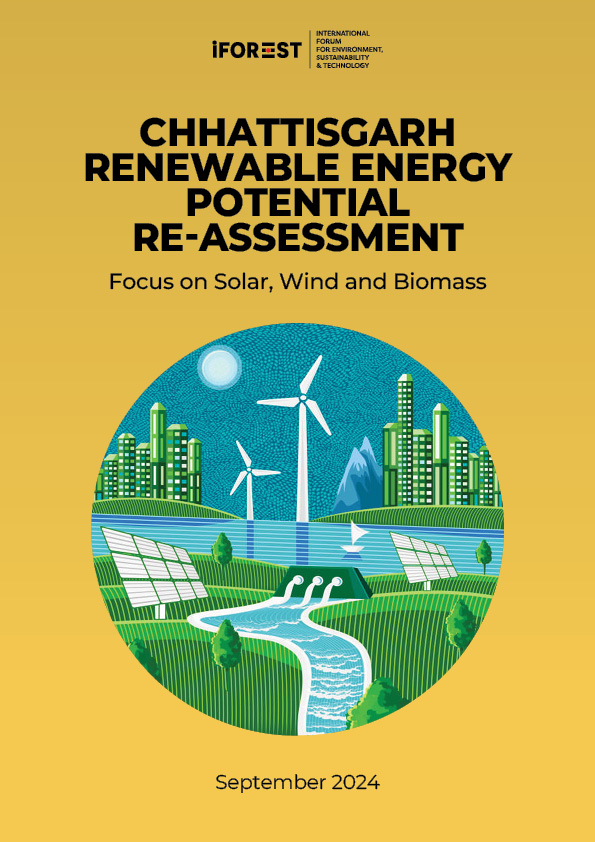
Chhattisgarh Renewable Energy Potential RE-Assessment
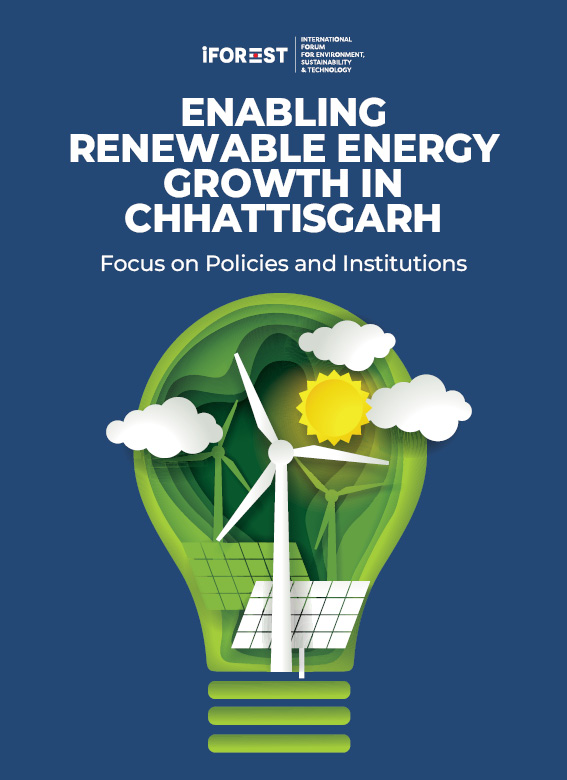
Enabling Renewable Energy Growth in Chhattisgarh
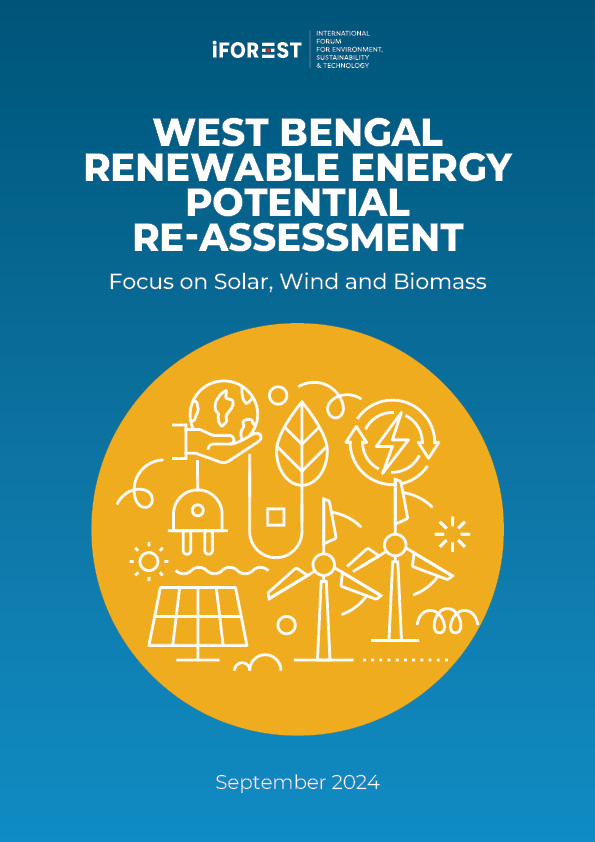
West Bengal Renewable Energy Potential RE-Assessment
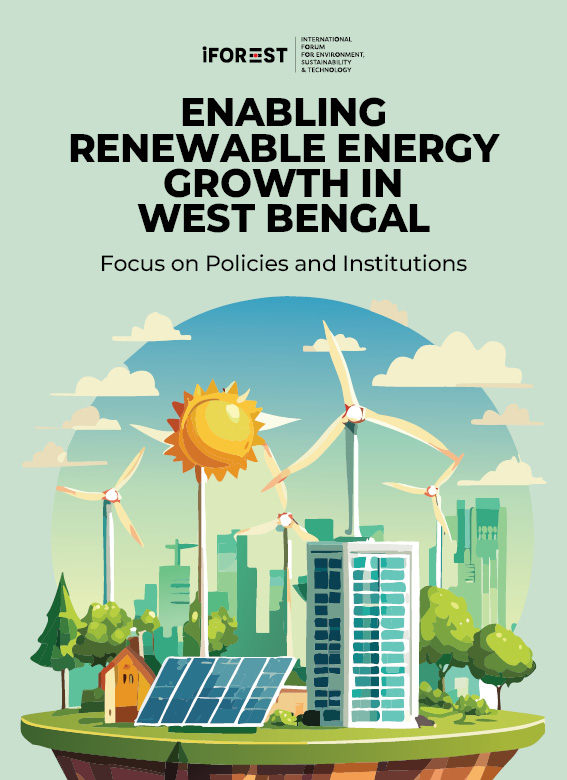
Enabling Renewable Energy Growth in West Bengal
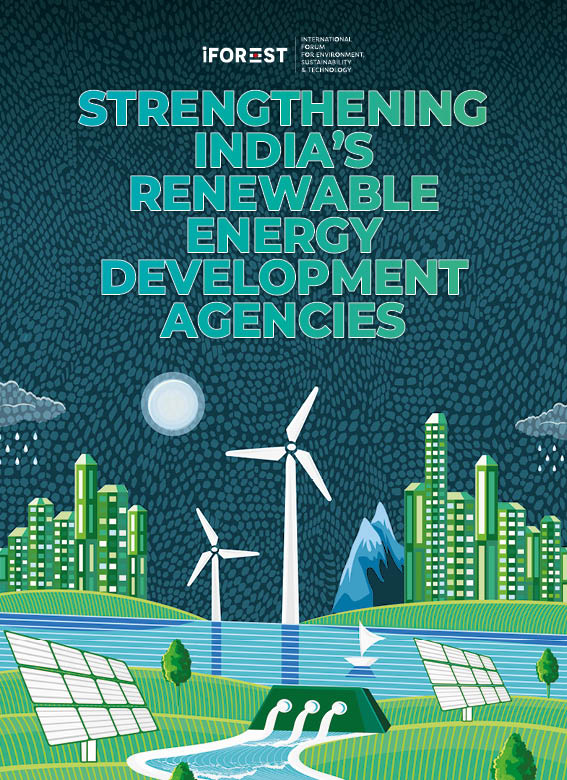
Strengthening India’s Renewable Energy Development Agencies
The institutional strength of a renewable energy development agency (REDA) is fundamental for state action. While state-level policies can equip REDAs with the necessary tools for investment facilitation, implementation efficiency can only be ensured by a strong institution. This is evidenced by the fact that states have failed to meet RE goals despite excellent and detailed policy declarations due to their nodal agencies’ limited capacity or capability (such as in Jharkhand). At the same time, some states have excelled in RE deployments despite minimal policy declarations due to the proactive role played by REDAs (such as in Chhattisgarh). The report focuses on mapping the role of these institutions in enabling the RE growth at the state level and the need for institutional capacity building
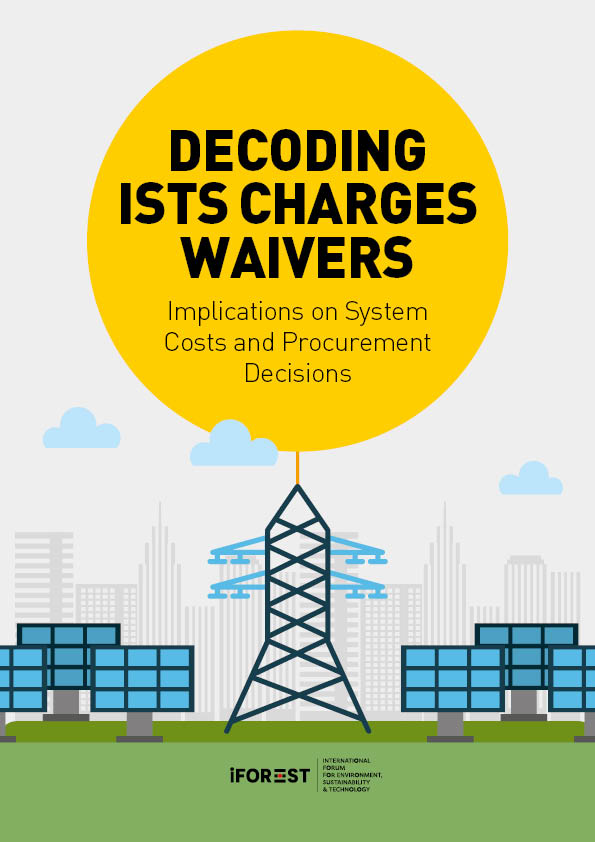
Decoding ISTS charges waivers: Implications on system costs and procurement decisions
The Ministry of Power introduced a waiver on the inter-state transmission system (ISTS) charges and losses for renewable energy (RE) projects in 2016 to support states with ‘low RE’ potential in meeting their renewable purchase obligations (RPO). The waiver policy prominently contributed to the exponential growth of RE in India, by expanding RE markets, making solar and wind projects more competitive. At present, the ISTS waiver is scheduled to be phased out by July 2028. At this juncture, when the solar and wind industry has matured and become the cheapest source of utility power in the country, it is crucial to closely examine the impact of the policy from the perspective of investment efficiency and regional equity/justice. The report examines this across three key themes – transmission investments and resulting costs, the impact on transmission bills of DICs, and the impact on RE procurement decisions and, thus, the RE development in relatively ‘low-RE’ states.
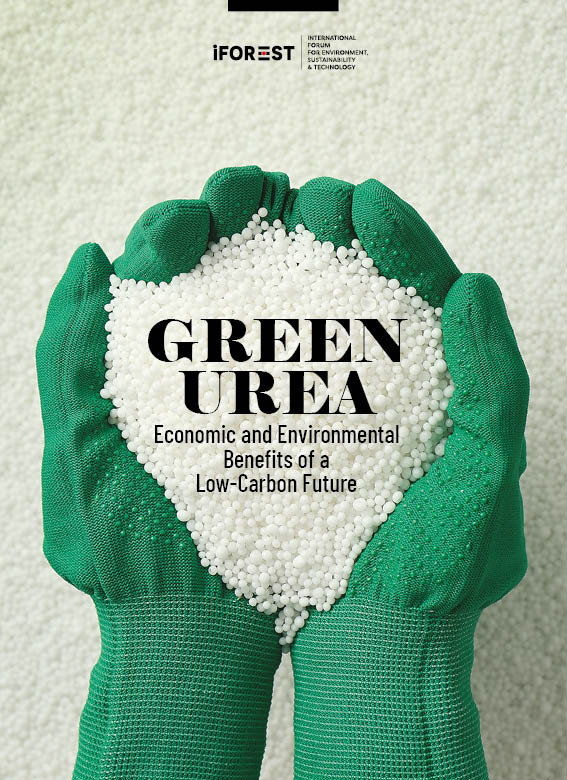
Green Urea - Economic and Environmental Benefits of a Low-Carbon Future
Since the Green Revolution, which kicked off in the 1960s as a response to India’s low agricultural productivity and need to import food, the nation has relied on Urea to provide the nitrogen necessary for higher crop yields and food security. But this reliance has come at a cost to the economy and the environment. Urea use has a significant role in three major environmental challenges: nitrogen pollution, ozone layer depletion and climate change. As Urea production depends entirely on fossil fuels,
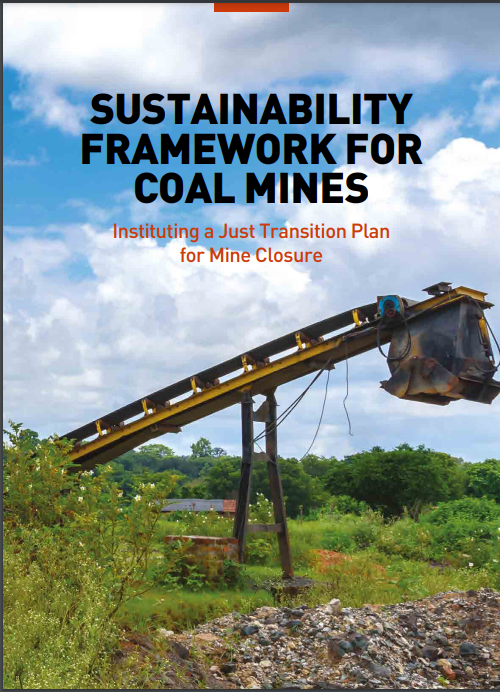
Sustainability Framework for Coal Mines
About 0.35 million (3.5 lakh) hectares of land are currently under operational mines in India. Besides, a large amount of land is available with closed mines. This land holds enormous promise to create economic opportunities in the coal regions besides enhancing environmental sustainability. This report analyses the reclamation practices and socio-economic impacts of coal and lignite mine closures in India through 3 case studies. Based on the observations, the report outlines key policy and regulatory reforms to support a sustainable reclamation and repurposing of coal mining land, including the process of developing a just transition plan as part of final mine closure planning.
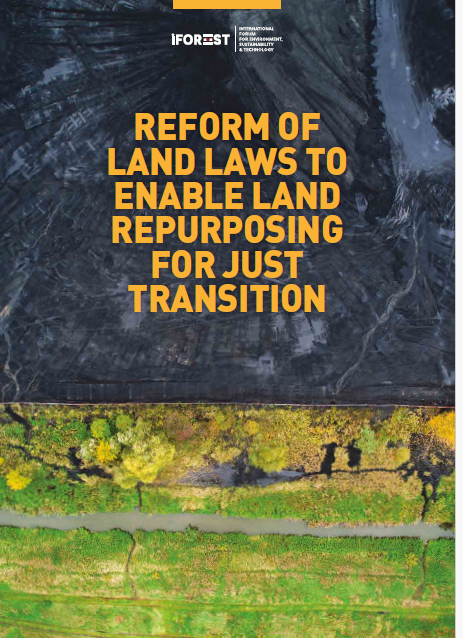
Reform of Land Laws to Enable Land Repurposing For Just Transition
Land repurposing is a crucial opportunity for economic diversification and sustainable development in region heavily dependent on fossil fuel industries such as coal mining and coal-based thermal power plants (TPPs). Over 4.4 lakh hectares of land available with operational coal mines and power plants constitutes a key opportunity for land repurposing and economic development in the coal-dependent regions.
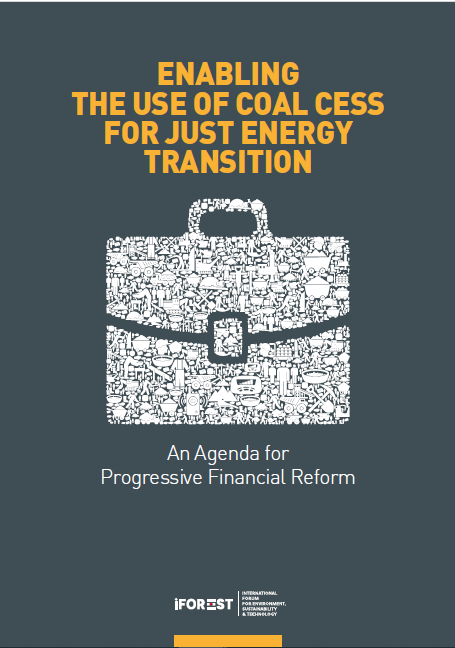
Enabling The Use of Coal Cess For Just Energy Transition
The cess on coal, instituted under the Finance Act of India in 2010, constitutes an important domestic resource for supporting just energy transition measures in the country, especially the coal states and districts that will face transition challenges in the coming decades. Some of these states (and specifically the districts) are already facing transition challenges due to a large number of end-of-life and economically unviable mines
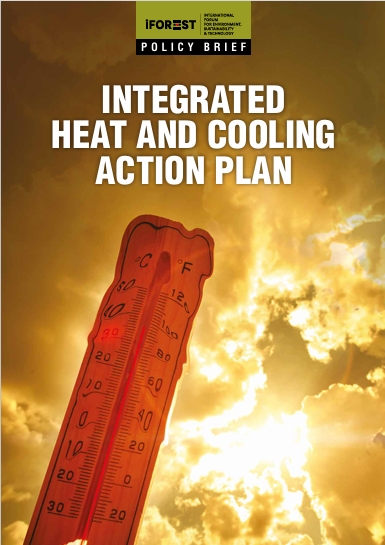
Integrated Heating and Cooling Action Plan for Cities
This iFOREST policy brief will delve into the critical issues of increasing extreme temperatures and rising cooling demand. It analyses the existing policy initiatives in these sectors, identifies the gaps, and proposes a new comprehensive framework for better adaption and mitigation against extreme heat and providing sustainable and equitable cooling without further warming the urban environment.
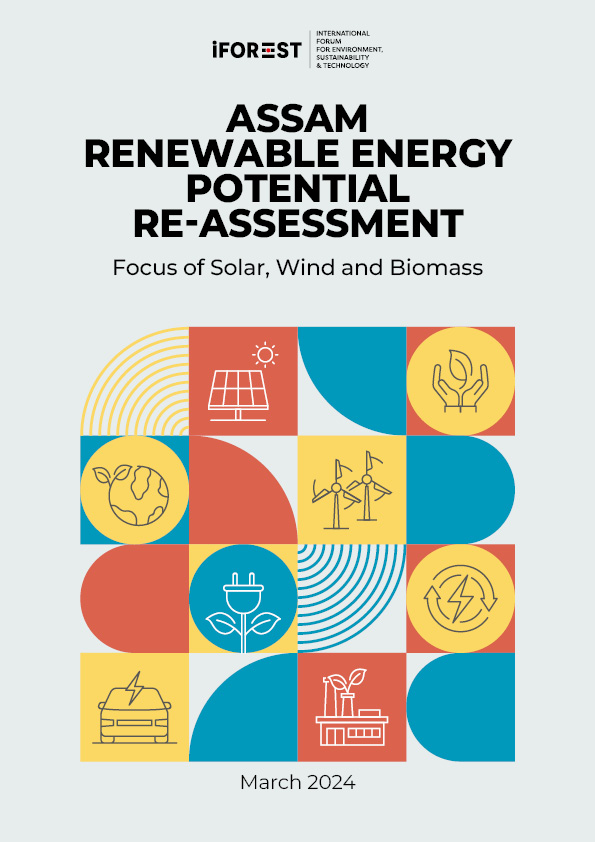
Assam Renewable Energy Potential RE-Assessment
Assam’s renewable energy potential is estimated at 14.4 GW, including 13.76 GW of solar, 246 MW of wind, 212 MW of biomass, 201 MW of small hydro and 8 MW of waste-to-energy. However, a more granular assessment of the state’s RE potential for each technology segment and identification of specific sites and regions based on updated data and assumptions are needed. This is important as Assam must add RE capacities significantly faster due to updated renewable purchase obligation (RPO) requirements. A more precise understanding of potential could greatly aid policy development and investment choices. This report reassesses the RE generation potential for Assam using updated data and assumptions for three key segments: solar, wind, and biomass.
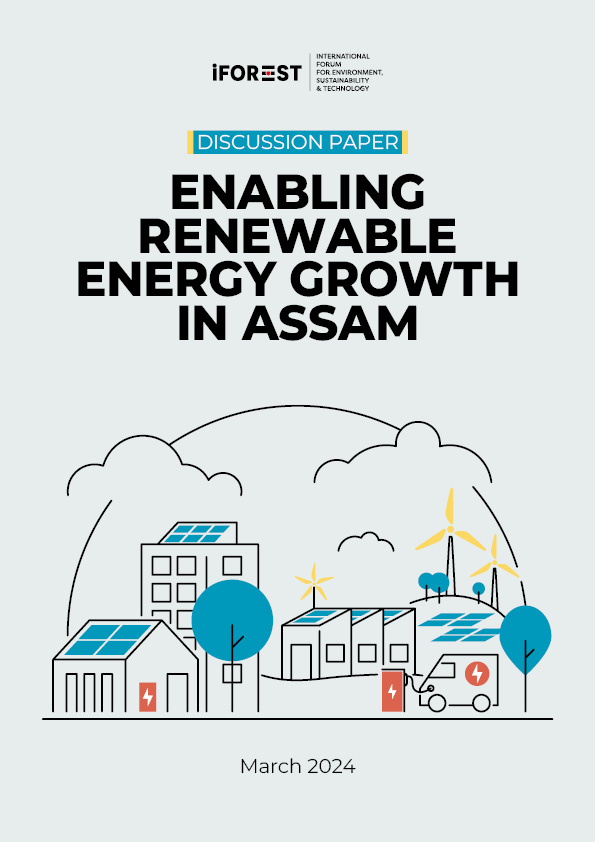
Enabling Renewable Energy Growth in Assam
Assam is steadily expanding its renewable energy (RE) installed base under the new Assam Renewable Energy Policy, 2022. At present, thermal power generation dominates the state’s utility installed capacity of 2,037 MW and a captive installed capacity of 529 MW. However, the Assam government recognises the urgent requirement of increasing RE penetration, with several new projects in the pipeline. In this discussion paper, iFOREST analyses the state of the RE sector in Assam, the new imperatives for RE growth, the adequacy of existing policy and institutional framework for supporting RE growth, and the recommendations for fast-tracking investments.
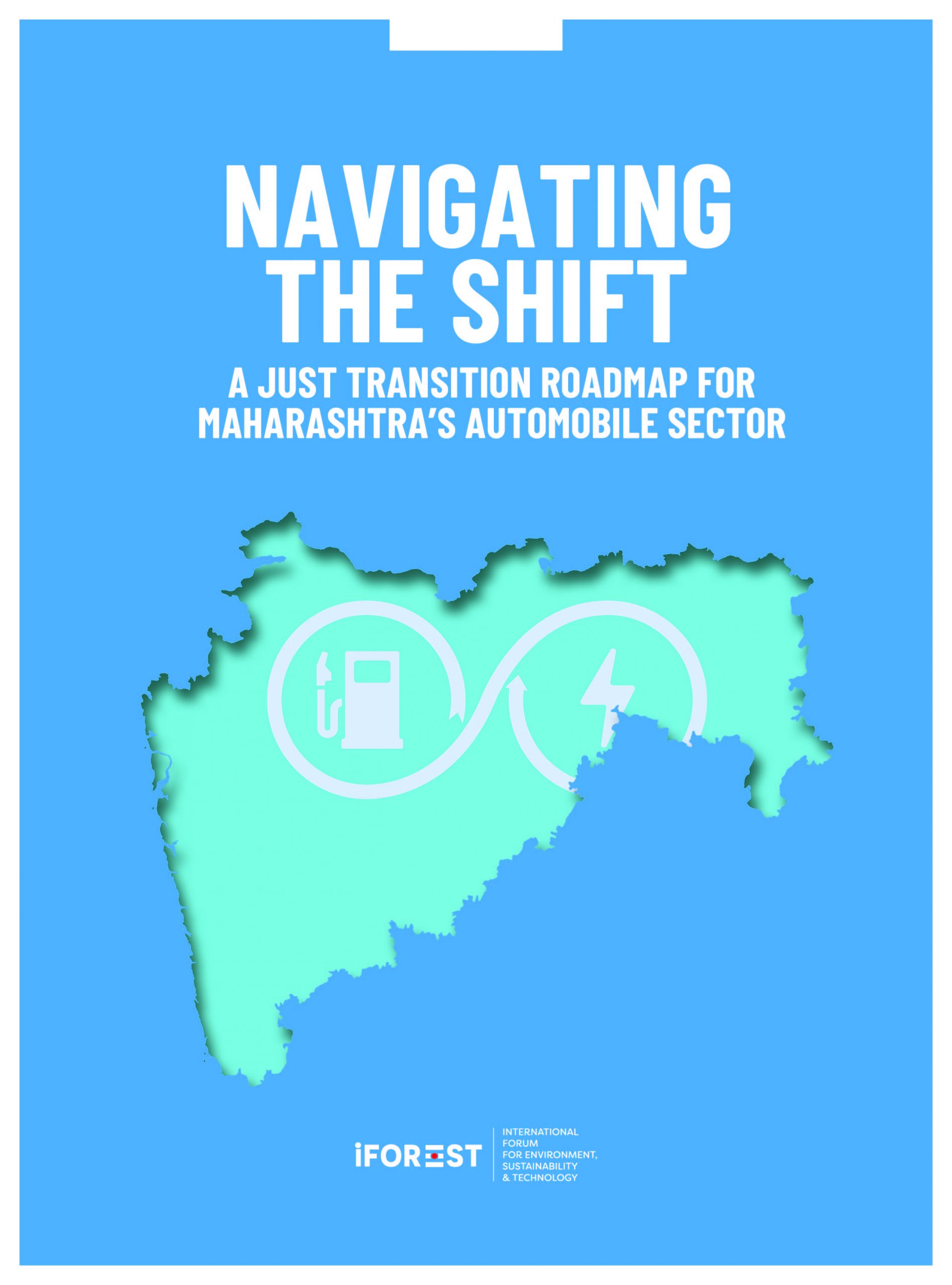
Navigating the shift: A Just Transition Roadmap for Maharashtra's Automobile Sector
In this report iFOREST studies the impacts of the EV transition on Maharashtra’s automobile sector on businesses, workers, and the environment. Impact of this transition is analyzed across the state with special reference on biggest auto cluster of India : Pune and developing a transition strategy for Pune auto cluster. Based on the prospective impacts, the report outlines a comprehensive roadmap for just transition of the automobile sector in Maharashtra, which can deliver positive environmental and socio-economic outcomes.
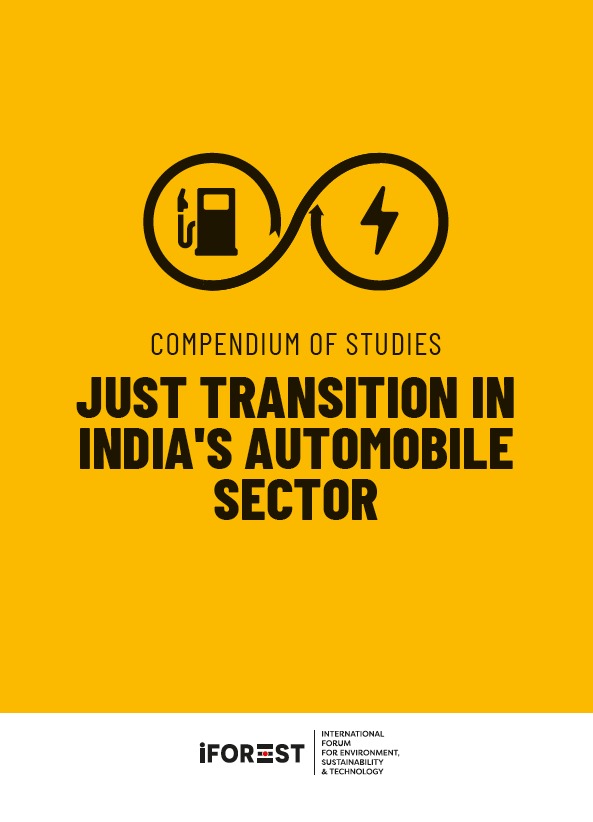
Just Transition in India's Automobile Sector
India’s automobile sector is poised for significant transition being driven by the electric vehicle revolution. iFOREST has undertaken an in-depth study to understand what just transition mean and what it entails for India’s automobile sector. This study explores the challenges and opportunities of transition to electric vehicles for businesses, workers and the environment covering a spectrum of issues including the impacts on the auto component manufacturers, the impacts on auto clusters – which are the manufacturing and employment hubs, and finally the impacts on the workforce.
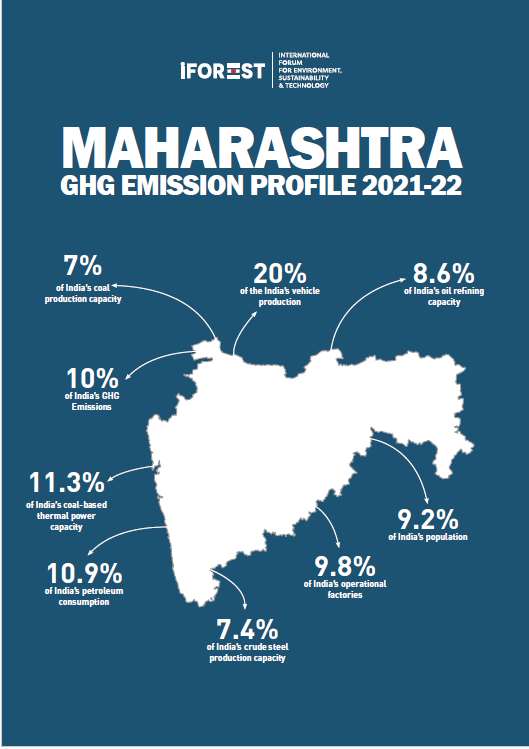
Maharashtra: GHG Emission Profile 2021-22
- Factsheet
- Download
The factsheet provides a sector-wise emission profile of Maharashtra. The key sectors which have been focused include Energy, Industrial, Agriculture, Forestry and Other Land Use, and Waste. Further, an insight to the contribution from different sectors is contextualised. The energy sector is the largest GHG emitter in the state accounting for 81% of the total emissions. More details inside.
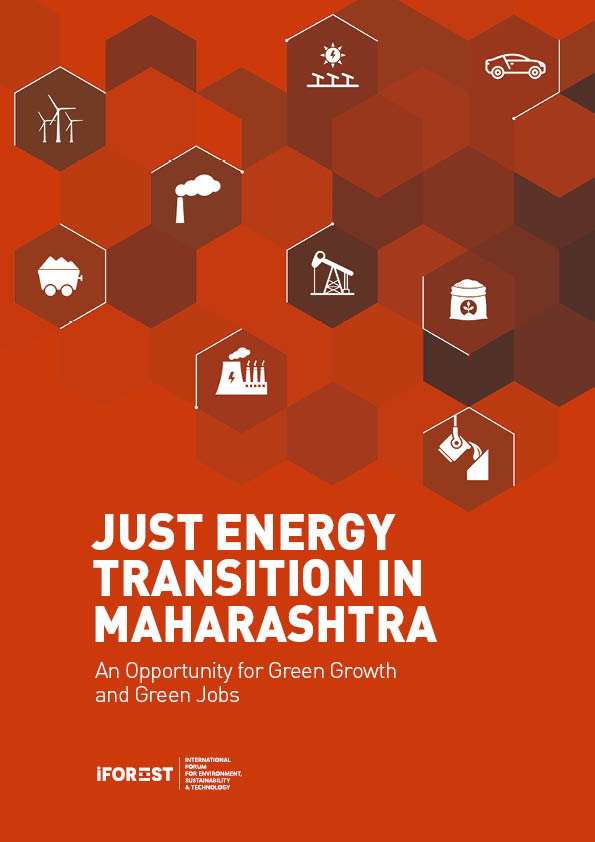
Just Energy Transition in Maharashtra: An Opportunity for Green Growth and Green Jobs
Maharashtra as a top industrial state and a key driver of India’s economy remain vital for building a net zero economy over the next 30 years. The iFOREST report — ‘Just Energy Transition in Maharashtra: An Opportunity for Green Growth and Green Jobs’ — is the first comprehensive assessment on challenges and opportunities of a just energy transition in the state in the next three decades. The assessment covers all fossil fuel sectors, the electricity sector, and various fossil fuel-dependent industries, to support a comprehensive strategy for the transition. The report emphasizes on the opportunities of the green transition which can be supported through the right policy levers and private and public investments.
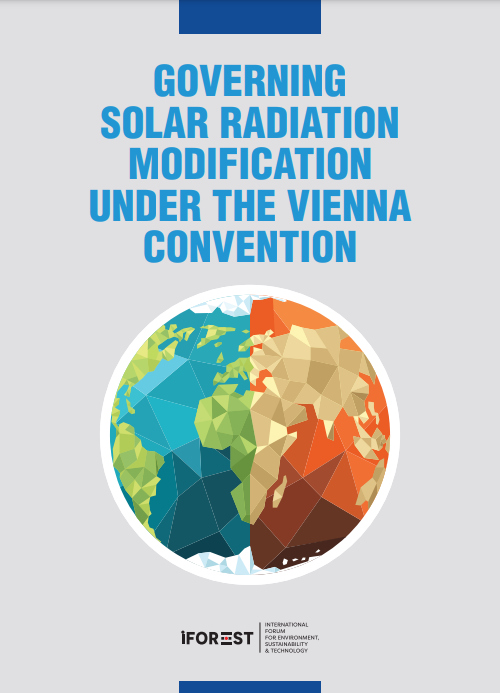
Governing Solar Radiation Modification Under The Vienna Convention
- Report
- Download
Geoengineering refers to a suite of technological interventions aimed at slowing or halting some of the effects of climate change. Two of the major kinds of geoengineering that are at present gaining traction rapidly are Solar Radiation Modification (SRM) and Carbon Dioxide Removal (CDR). SRM approaches focus on deliberately cooling the planet by reflecting a small amount of sunlight to space or by allowing more of Earth’s infrared radiation is to escape to space. SRM methods include utilizing mirrors in space to reflect sunlight (Space Based Reflectors), increasing the reflectivity of land or ocean surfaces (surface albedo), increasing the reflectivity of marine clouds (Marine Cloud Brightening), and increasing the reflectivity of the stratospheric aerosol layer via Stratospheric Aerosol Injection of SAI.
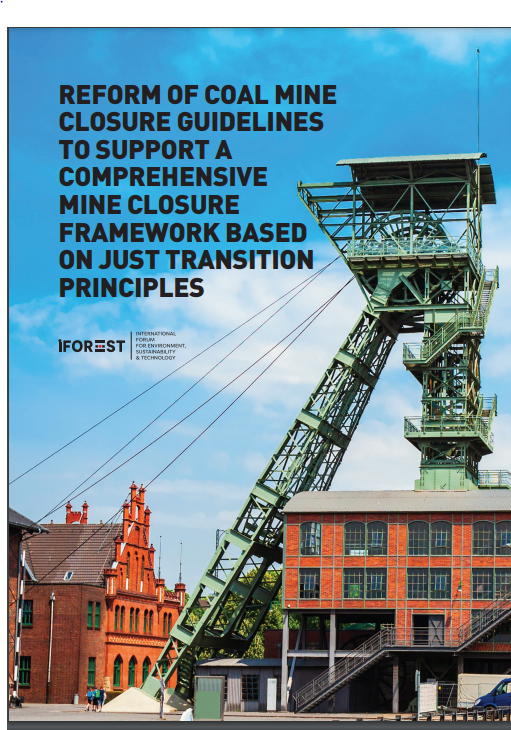
Reform of coal mine closure guidelines to support a comprehensive mine closure framework based on just transition principles
- Report
- Download
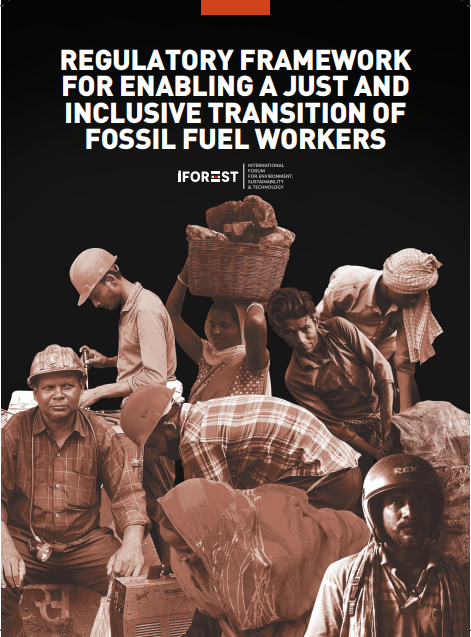
Regulatory Framework for Enabling a Just and Inclusive Transition of Fossil Fuel Workers
- Report
- Download
A just and inclusive transition of the workforce associated with the fossil fuel sectors and fossil fuel-based industries lies at the heart of the discourse on inclusive energy transition and climate action. To ensure this, it is necessary to have in place well-defined policies and institutional mechanisms.
This report outlines a regulatory framework for ensuring a just transition of the fossil fuel workforce, highlighting the guiding principles, necessary policy reforms, and institutional mechanisms. The report has been developed in the context of the coal mining and coal-based thermal power sectors, which have huge formal and informal dependence and are central to meeting India’s clean energy and net zero goals.
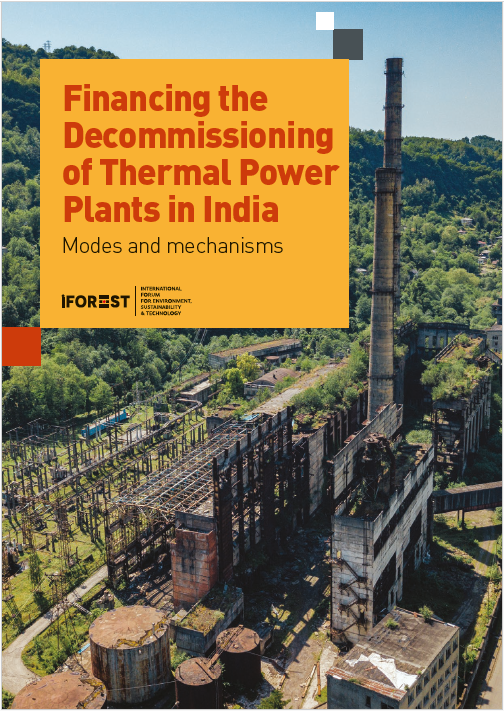
Financing the Decommissioning of Thermal Power Plants in India
- Report
- Download
In India, coal-based power generation units have been routinely retired at the end of their useful life. However, instances of old units being retired and not replaced with new units are increasing. In this scenario, adequate measures are required to mitigate the barriers to proper decommissioning and to ensure adequate end-of-life management. In the absence of clear guidance on crucial financial aspects, there is an increased risk of retired units being abandoned, hindering remediation and redevelopment. In this context, this report maps the key cost components arising during TPP decommissioning, financing mechanisms introduced in other regulated energy markets to cover such costs, existing provisions in India and the recommendations going forward.
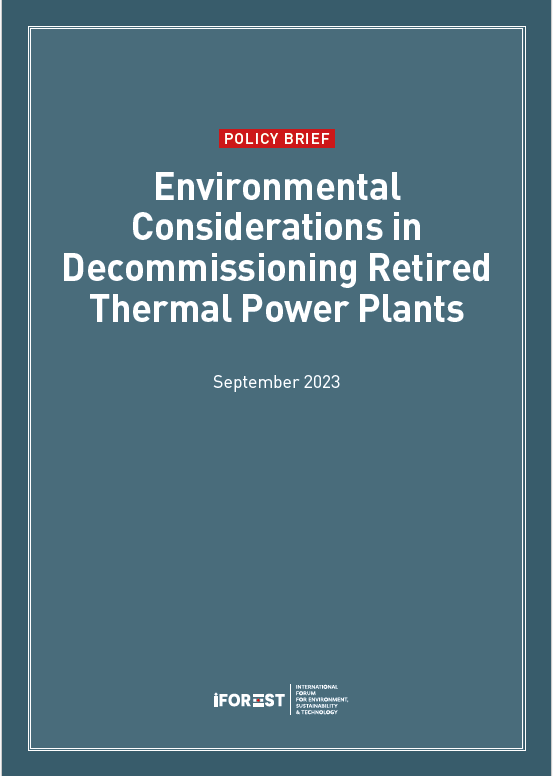
Environmental Considerations in Decommissioning Retired Thermal Power Plants
- Report
- Download
Environmental considerations are vital throughout the various stages of power plant closure, which entails distinct steps of decommissioning, dismantling, clean-up and remediation before the site is ready for redevelopment. At present, India does not have a dedicated law mandating clean-up and remediation works for TPP decommissioning or even for industrial decommissioning. Currently, there are multiple existing regulations that kick in to address different aspects of decommissioning but from a holistic perspective, there are several additional considerations to be addressed by regulatory guidelines. This policy brief attempts to address those considerations.
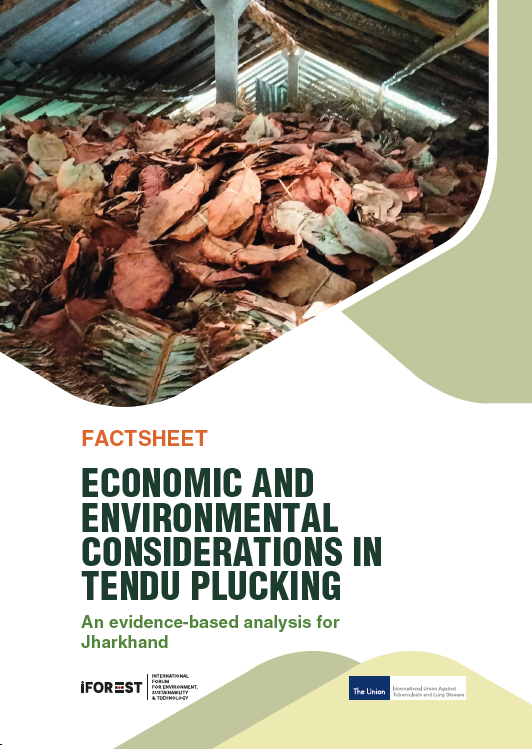
Economic and environmental considerations in tendu plucking: An evidence-based analysis for Jharkhand
- Factsheet
- Download
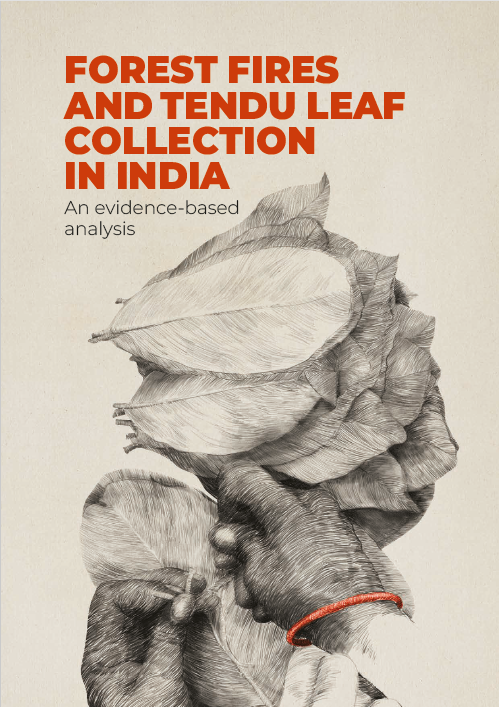
Forest fires and tendu leaf collection in India : An evidence-based analysis
- Report
- Download
India’s climate change goals are threatened by the growing incidence of forest fires, estimated to have increased tenfold in the last two decades. Forest fires are a serious ecological concern due to their adverse impact on biodiversity, terrestrial ecosystem productivity and fertility, and soil and water quantity and quality, among others. A serious cause for concern is that nearly 95 per cent of forest fire incidences in India are believed to be human-induced, whether accidental or deliberate. Understanding this is important to design and introduce policies, practices and schemes that can help arrest the growing number of forest fires in the country.
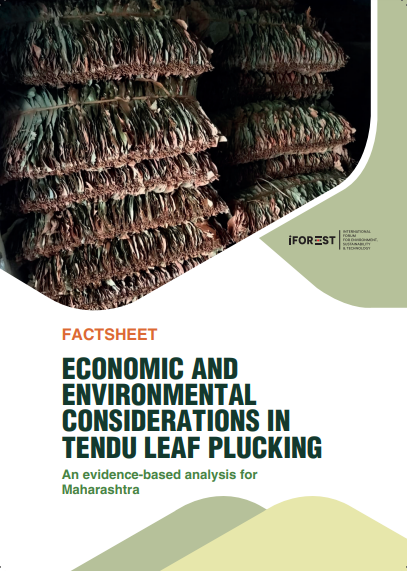
Economic & environmental considerations in tendu leaf plucking - An evidence-based analysis for Maharashtra
- Factsheet
- Download
There is preliminary but strong evidence that there is a significant environmental impact of tendu leaf collection practices. We have also found through survey in 385 tendu-collecting households in Chandrapur district, Maharashtra, that while tendu is a good source of supplementary income for the dependent communities, it has not helped address the underlying poverty among forest communities. The Maharashtra factsheet disseminates iFOREST’S findings from a larger study on the economic and environmental implications of tendu collection practices in India, which specifically focuses on the states of Chhattisgarh, Maharashtra and Odisha.
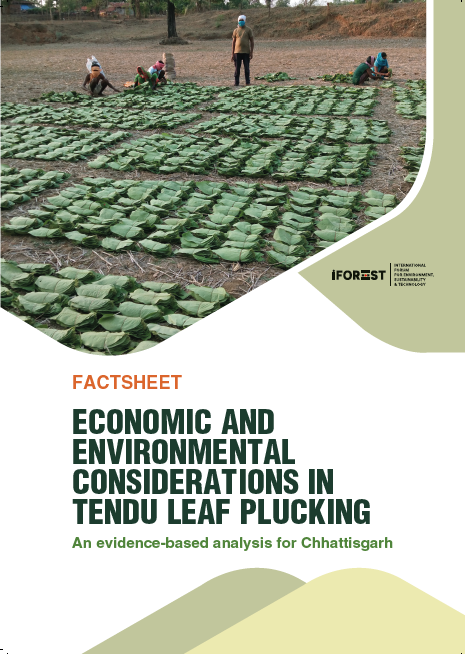
Economic & environmental considerations in tendu leaf plucking - An evidence-based analysis for Chhattisgarh
- Factsheet
- Download
There is preliminary but strong evidence that there is a significant environmental impact of tendu leaf collection practice. We have also found through survey in 381 tendu-collecting households in Korba district, Chhattisgarh, that while tendu is a good source of supplementary income for the dependent communities, it has not helped address the underlying poverty among forest communities. The Chhattisgarh factsheet disseminates iFOREST’S findings from a larger study on the economic and environmental implications of tendu collection practices in India, which specifically focuses on the states of Chhattisgarh, Maharashtra and Odisha
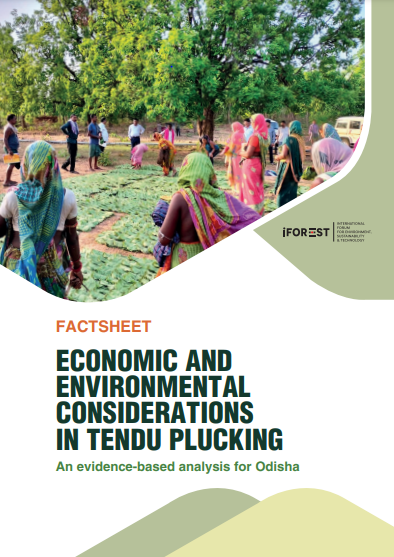
Economic & environmental considerations in tendu leaf plucking - An evidence-based analysis for Odisha
- Factsheet
- Download
There is preliminary but strong evidence that there is a significant environmental impact of tendu leaf collection practice. We have also found through survey in 381 tendu-collecting households in Angul district, Odisha, that while tendu is a good source of supplementary income for the dependent communities, it has not helped address the underlying poverty among forest communities. The Odisha factsheet disseminates iFOREST’S findings from a larger study on the economic and environmental implications of tendu collection practices in India, which specifically focuses on the states of Odisha, Maharashtra and Chhattisgarh.
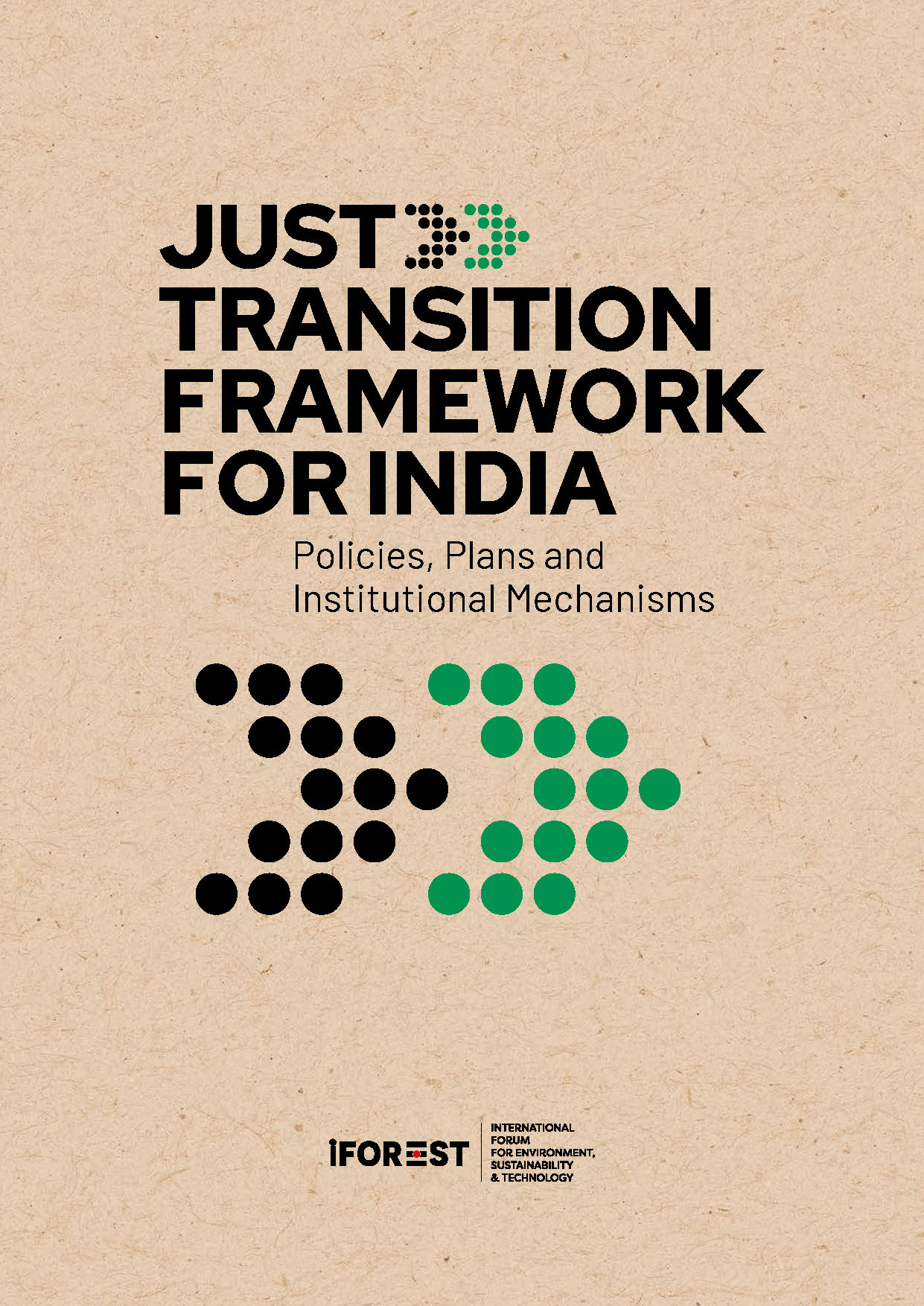
Just Transition Framework for India: Policies, Plans and Institutional Mechanisms
- Report
- Download Report
For India to meet its net zero target by 2070 and energy independence goal by 2047, a framework of just transition at the national and state levels is essential. The framework(s) will guide strategic pathways and implementation mechanisms to achieve net-positive environmental, social and economic outcomes in a timebound manner and through the cooperation of all stakeholders.
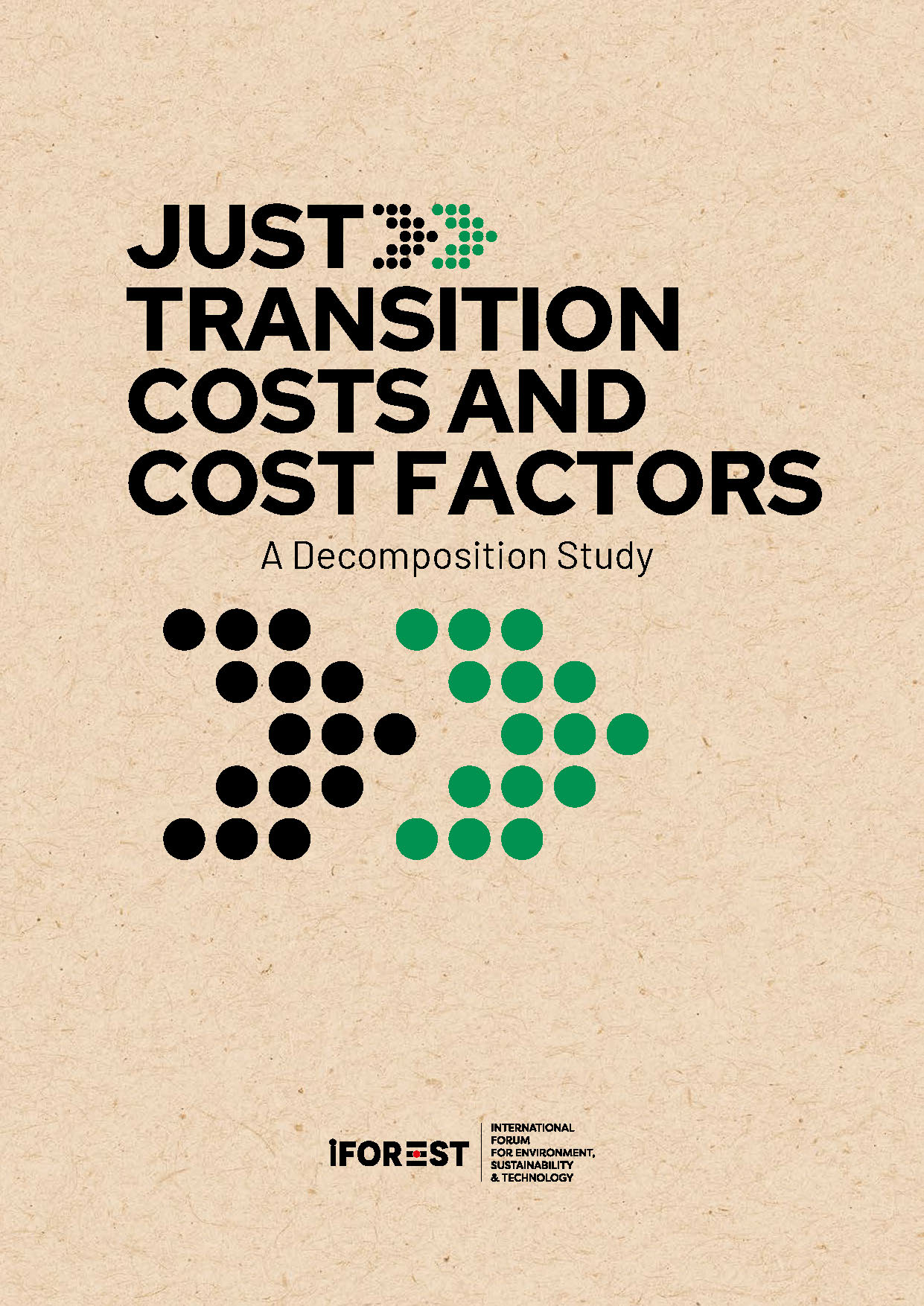
Just Transition Costs and Cost Factors: A Decomposition Study
- Report
- Download Report
A Just Transition from coal dependence encompasses technological transition with social, economic, and institutional transformation. This study attempts to identify cost factors for each component based on a suitable denominator – the capacity of decommissioned thermal power plant (TPP), reduced coal production, affected worker or affected population.
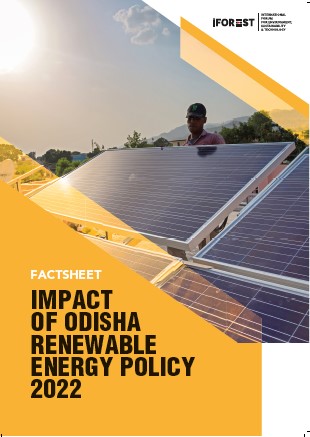
Impact of Odisha Renewable Energy Policy 2022
- Factsheet
- Download Factsheet
Odisha Renewable Energy Policy (OREP), 2022 identifies the need to add 21,700 MW of new RE capacity by 2029-30 to meet the state’s new renewable purchase obligation (RPO) requirement. Of this, about 16,000 MW is required by industries for captive use and 5,700 MW by the utility. Currently, Odisha largely relies on RE imports from other states to meet its RPO requirements, missing out on the investment opportunity within the state. iFOREST research highlights the environmental and economic benefits associated with the implementation of the new policy.
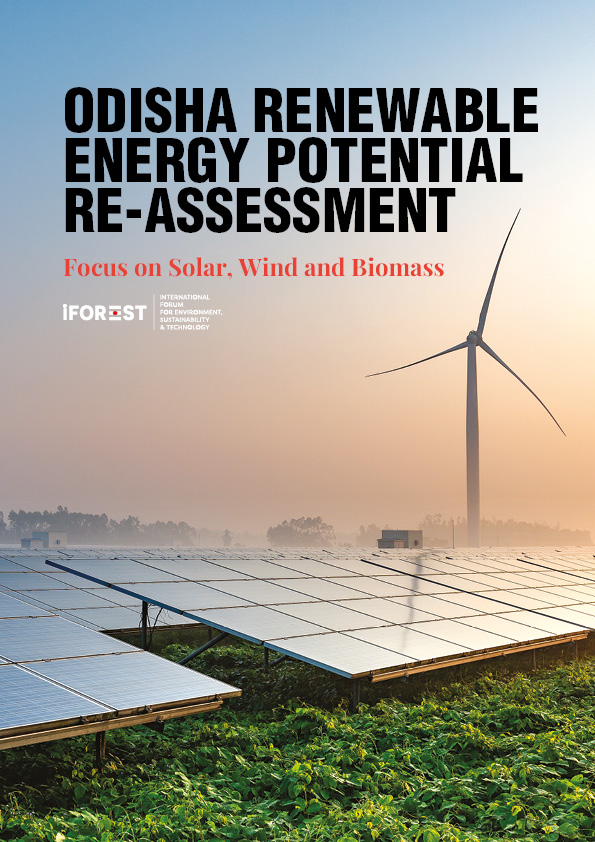
Odisha Renewable Energy Potential Re-assessment: Focus on Solar, Wind and Biomass
- Report
- Download Report
There is an urgent need to revisit the assessed RE generation potential of Odisha, as the recently launched Odisha Renewable Energy Policy, 2022 looks to promote more and more RE installations within the state to meet the new renewable purchase obligation (RPO) requirements. The assessed generation potential of a state impacts the mindset of both policymakers and investors in approaching intra-state expansion. Clarity on actual potential can help support policy moves and investment decisions that expand the share of RE in the state. The report reassesses the solar, wind and biomass potential of the state using new data and assumptions.
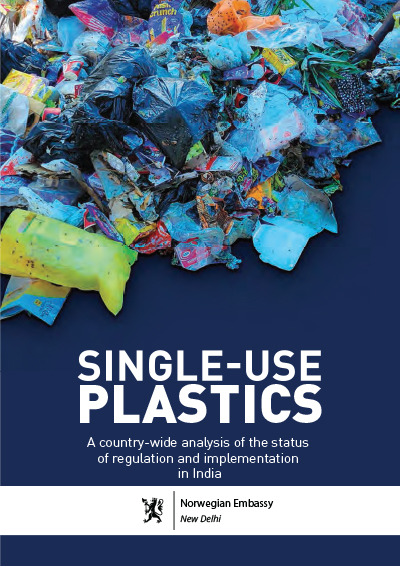
Single-Use Plastics
- Report
- Download Report
The report evaluates the status of regulations on SUPs and their implementation across the 36 states and UTs of India between 2016 to 2019 to understand gaps and challenges in their design and implementation. It is important to note that these analyses were conducted, well before the current SUP ban was announced. Thus, while some of the lessons in the report may be used to design any future plastic legislation, it is not a commentary on the SUP ban of 1 July 2022.
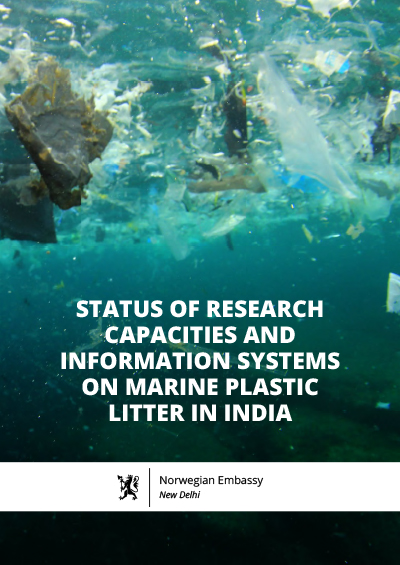
Status of research capacities and information systems on marine plastic litter in India
- Report
- Download Report
The report presents the status of data and research, and the capacities of research institutions on marine plastic litter in India. The literature review was carried out to assess the availability of data on marine litter in four different fates, as recognised under the SDG Target 14.1: on beaches or shorelines (beach litter), floating on the water or in the water column, on the seafloor/seabed, and ingested by biota (e.g., sea birds). Research institutions were surveyed and studied to understand their geographical presence, focus research areas and engagement, and their capacity to conduct research on marine litter.
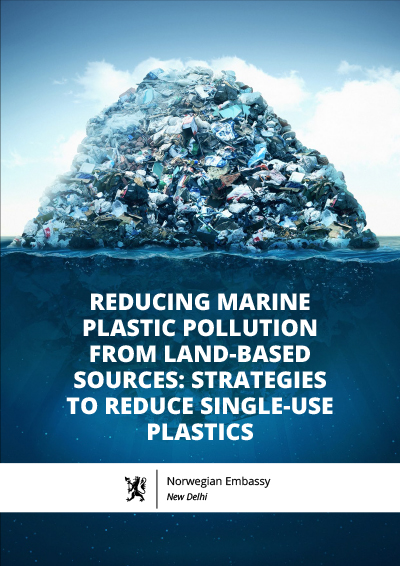
Reducing Marine Plastic Pollution from Land-Based Sources: Strategies to Reduce Single-use Plastic
- Report
- Download Report
This policy brief on reducing marine plastic pollution from land-based sources, focuses on the current state of knowledge and institutional capacity on marine plastic litter and the strategies to reduce marine litter by developing a comprehensive approach to reduce the demand and usage of SUPs. This is the first step to develop an integrated approach to reduce marine plastic litter.
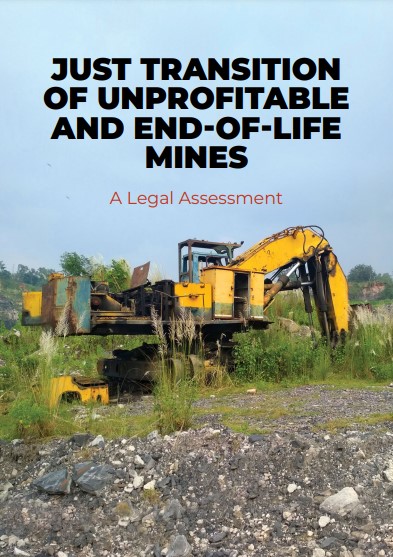
Just Transition of Unprofitable and End-of-Life Mines: A Legal Assessment
- Report
- Download Report
The report offers an in-depth evaluation of laws and regulations pertaining to environmental, land and labour aspects of the coal sector, which have salience for a just transition. It also looks into the challenges and limitations of the existing laws and regulatory mechanisms and outlines necessary reforms to support an environmentally and socially responsible transition, which is also timebound.
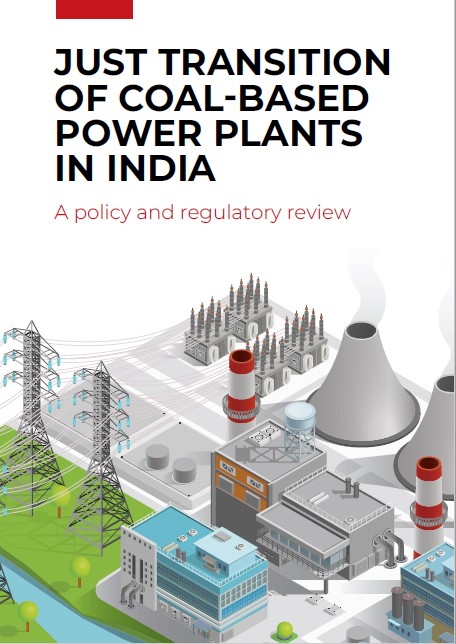
Just transition of coal-based power plants in India: A policy and regulatory review
- Report
- Download Report
India’s coal fleet is fast ageing. About one-fifth of the current capacity is primed for decommissioning as their average age is more than 35 years. If the Ministry of Power’s advisory to retire coal-based generation units of more than 25 years old is implemented, then as much as 50-60 GW capacity will retire in the coming ten years. But is India prepared to decommission such large capacities under a just transition framework, ensuring fair and inclusive outcomes for the environment, labour and community?
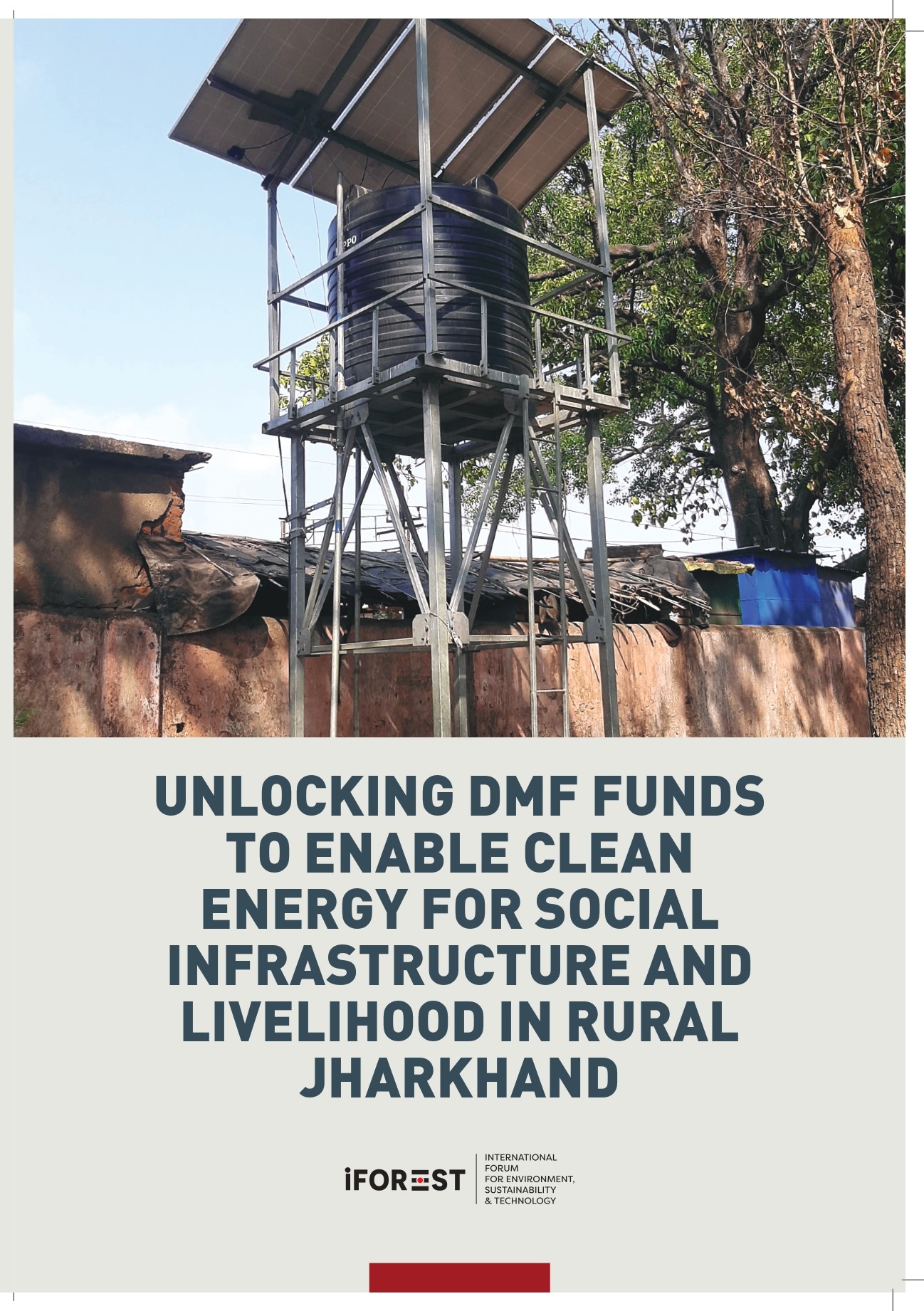
Unlocking DMF funds for supporting DRE in Jharkhand
- Report
- Download Report
The report emphasizes solutions and implementation models, based on comprehensive research across five mining districts (i.e Chatra, Dhanbad, Hazaribagh, Ramgarh, West Singhbhum) of Jharkhand to establish DRE integration as an essential focus area under various priority spending areas of the District Mineral Foundation (DMF), including health, nutrition, education, and livelihood. DRE applications have already been playing a pivotal role in bridging the energy access gap in Jharkhand, and DMF can play an essential role in expanding its reach, effectiveness, adoption, and maintenance.
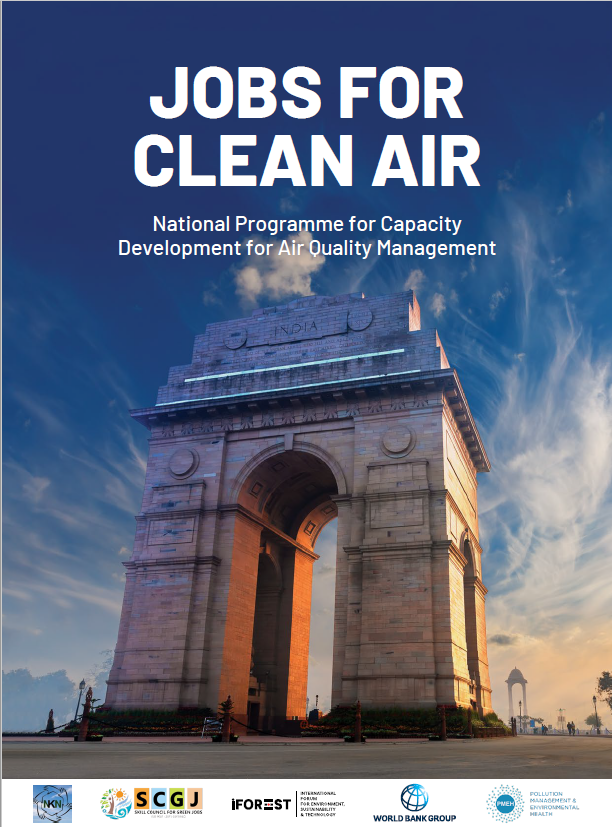
Jobs For Clean Air
- Report
- Download Report
- Summary (English)
The report is the first to map India’s Air Quality Management (AQM) sector and the various direct and indirect jobs within it. It recommends a capacity building road map for the next five years to meet the goals of the National Clean Air Programme (NCAP)
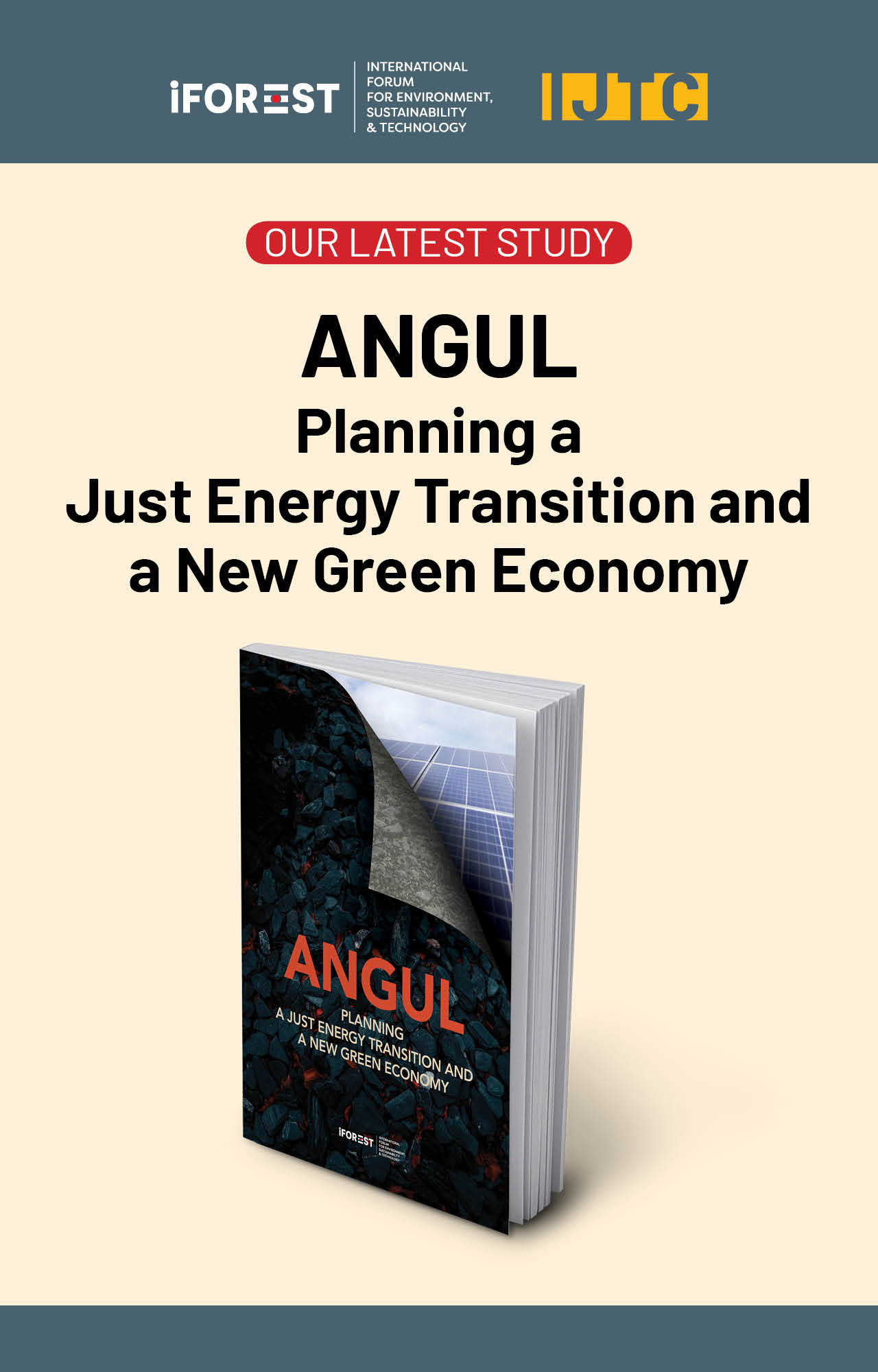
Angul: Planning a Just Energy Transition and a New Green Economy
The study on just transition for Angul was undertaken to evaluate how Odisha’s largest coal mining and industrial district can strategically plan for a just energy transition and simultaneously build a green economy
in the coming decades.
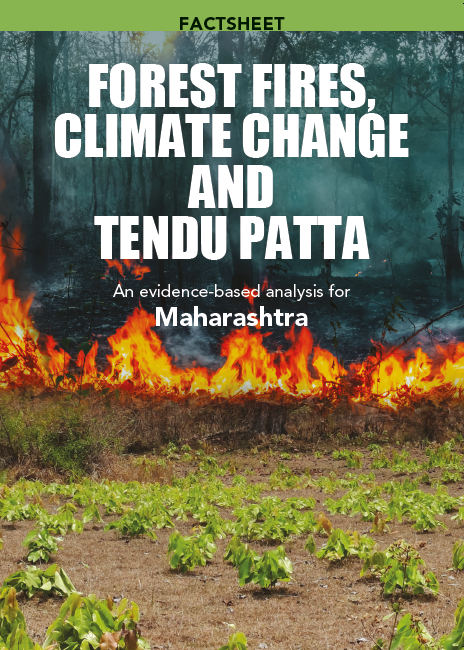
Forest Fires, Climate Change and Tendu Patta - An evidence-based analysis for Maharashtra
- Factsheet
- Download Factsheet
The study of Maharashtra was undertaken as part of a research project that aims at, among other things, establishing the linkages between tendu patta collection practices and forest fires. Further, it aims at understanding the impact of these fires in terms of the area burnt and the emissions.
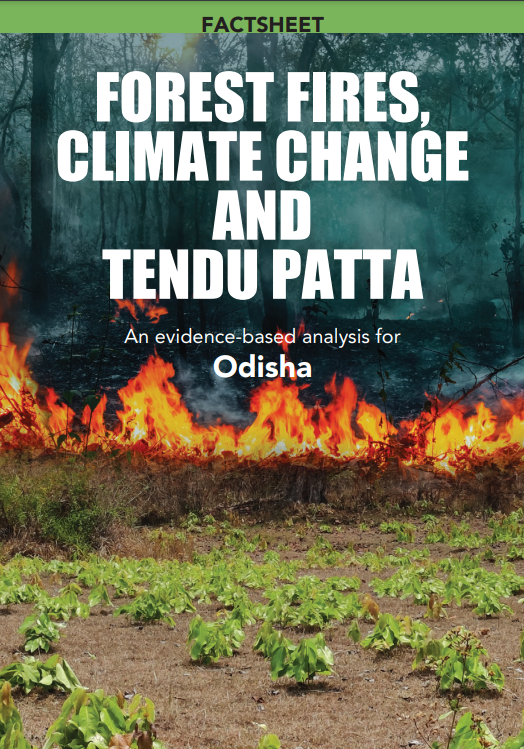
Forest Fires, Climate Change and Tendu Patta - An evidence-based analysis for Odisha
- Factsheet
- Download Factsheet
The study of Odisha was undertaken as part of a research project that aims at, among other things, establishing the linkages between tendu patta collection practices and forest fires. Further, it aims at understanding the impact of these fires in terms of the area burnt and the emissions.
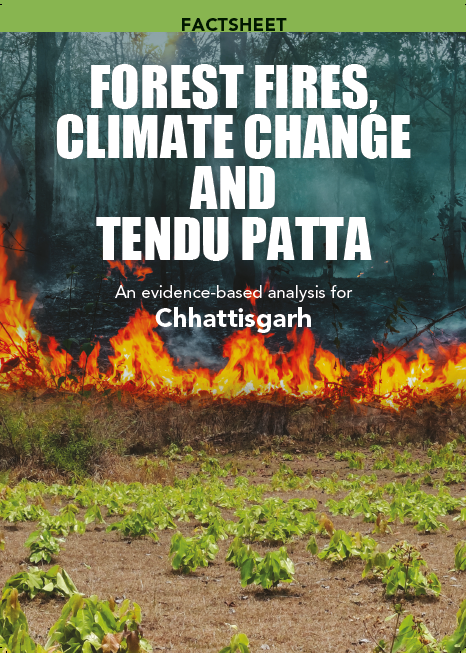
Forest Fires, Climate Change and Tendu Patta - An evidence-based analysis for Chhattisgarh
- Factsheet
- Download Factsheet
The study of Chhattisgarh was undertaken as part of a research project that aims at, among other things, establishing the linkages between tendu patta collection practices and forest fires. Further, it aims at understanding the impact of these fires in terms of the area burnt and the emissions.
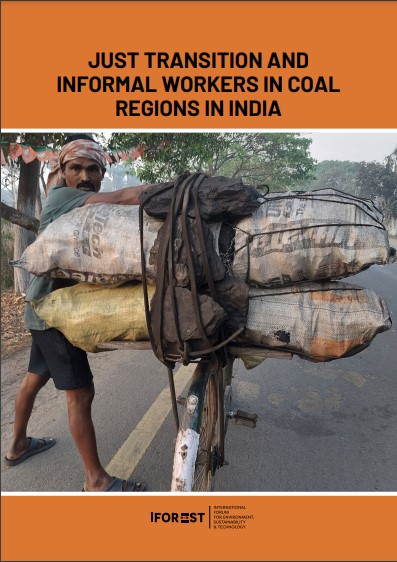
Just Transition and informal coal workers in coal regions in India
- Report
- Download Report
There is a high proportion of informal workers in India’s coal states and districts who are directly dependent
on coal for an income. These workers are engaged in a variety of activities related to coal mining, coal transportation, and in the coal washeries. Besides, a large proportion of people earn a living by gathering and selling coal. These workers collectively constitute the informal coal economy.
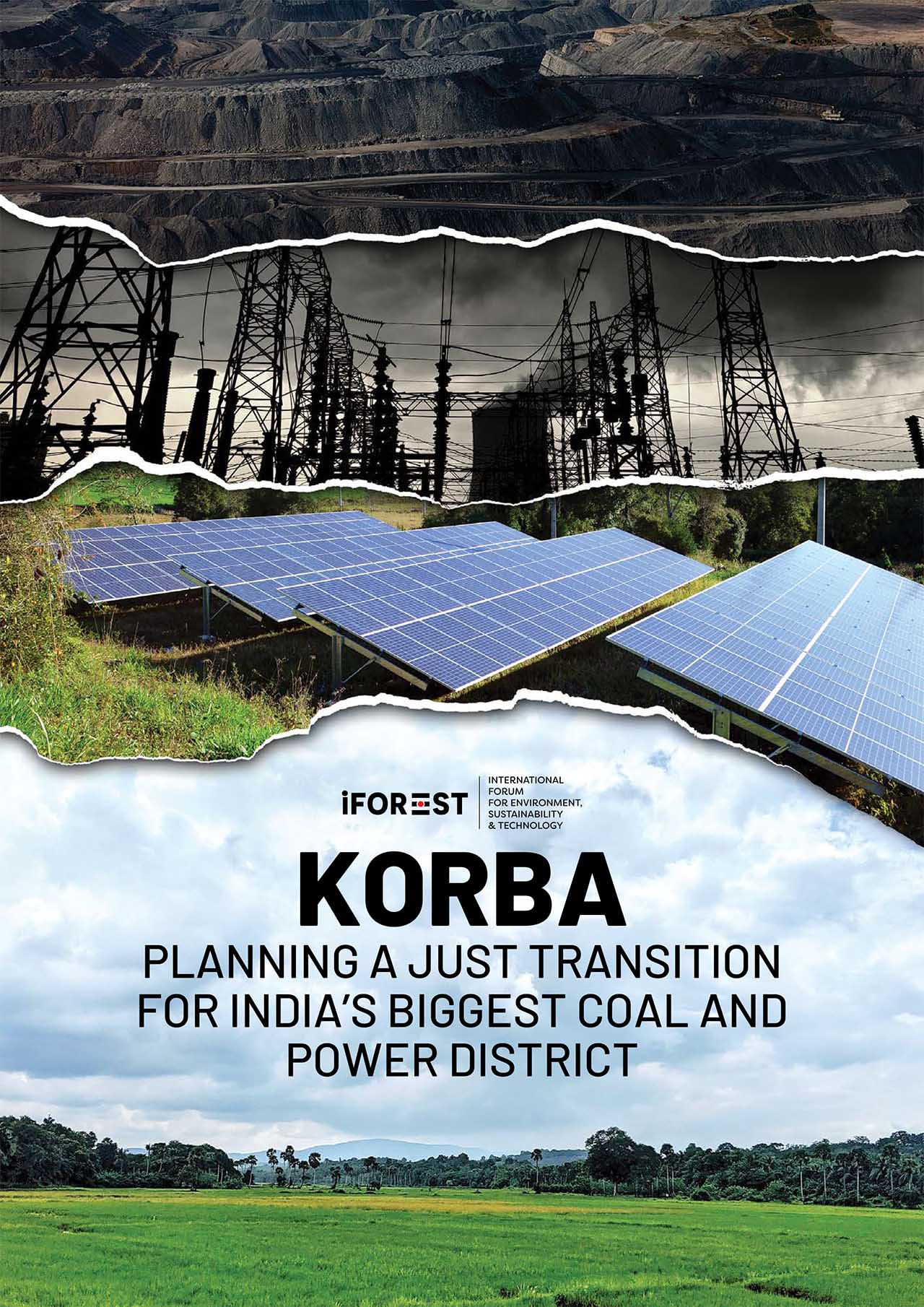
Korba: Planning a Just Transition for India's Biggest Coal and Power District
The study of the Korba district of Chhattisgarh was undertaken to understand what a just transition will mean and entail for India’s top coal mining and coal-based power districts, and how a just transition planning can be approached.
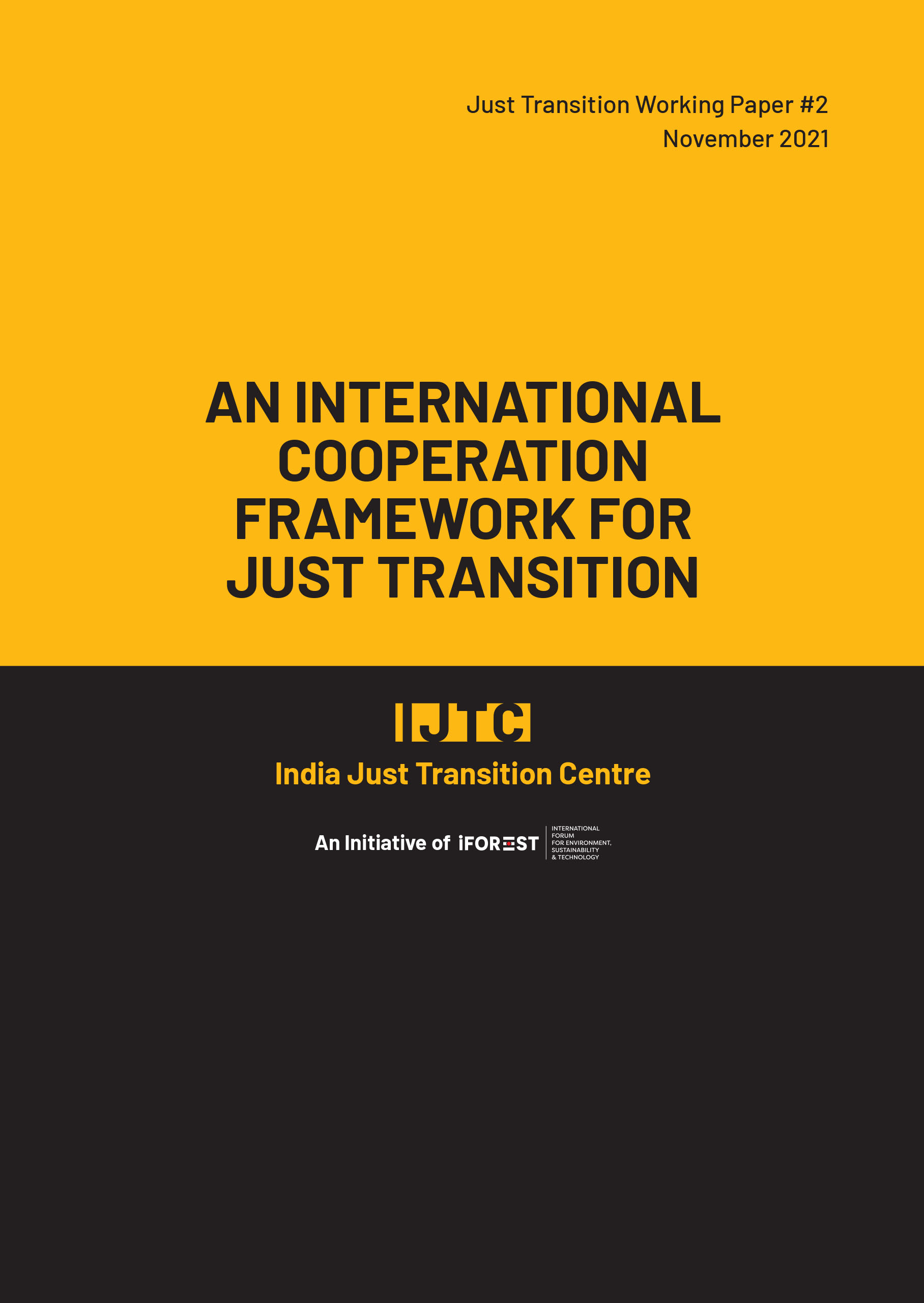
An International Cooperation Framework for Just Transition
- Working Paper
- Energy & Climate Change
- Download
Developing countries require massive financial and technical support to ensure just and equitable phase out of coal under accelerated timelines, aligned with achieving decarbonization goals. The requirement of strengthened support has been brought up on several occasions at the ongoing COP26.
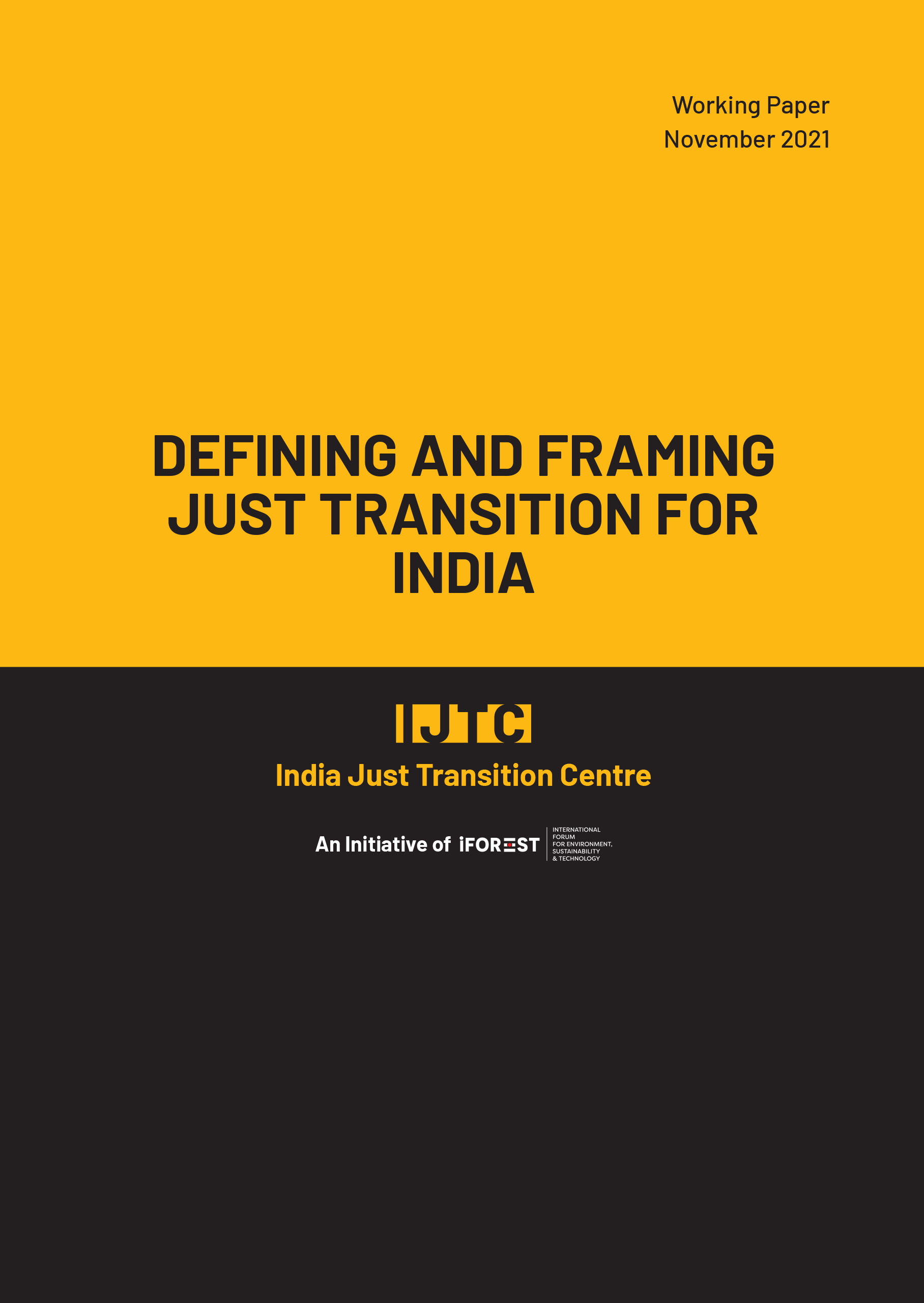
Defining and Framing Just Transition for India
- Working Paper
- Energy & Climate Change
- Download
A precise definition and an appropriate framing of just transition in the context of India’s fossil fuel regions and economy is essential to build policy momentum and public engagement on the issue. This is also important for formulation of relevant policies and just transition plans that are guided by the principles of social and environmental justice, and are designed to achieve net positive social, economic and environmental outcomes.
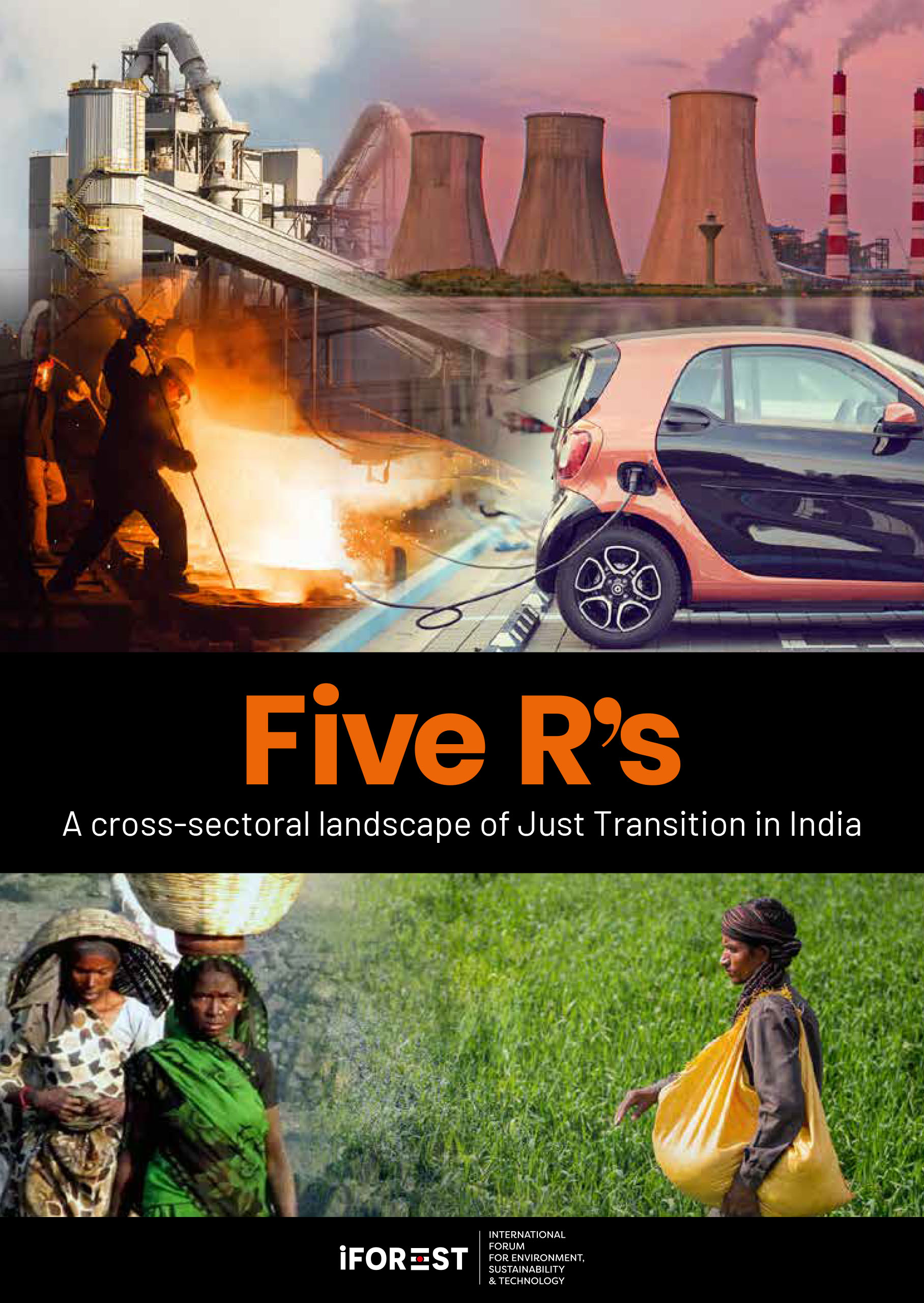
Five R's - A cross-sectoral landscape of Just Transition in India
- Report
- Energy & Climate Change
- Summary
- Report
India’s trajectory for energy transition will determine the policy and planning approach for the just transition. Two recent modelling studies on net-zero emissions pathways for India provide a glimpse of possible trajectories to reduce fossil fuels over the next three to four decades.
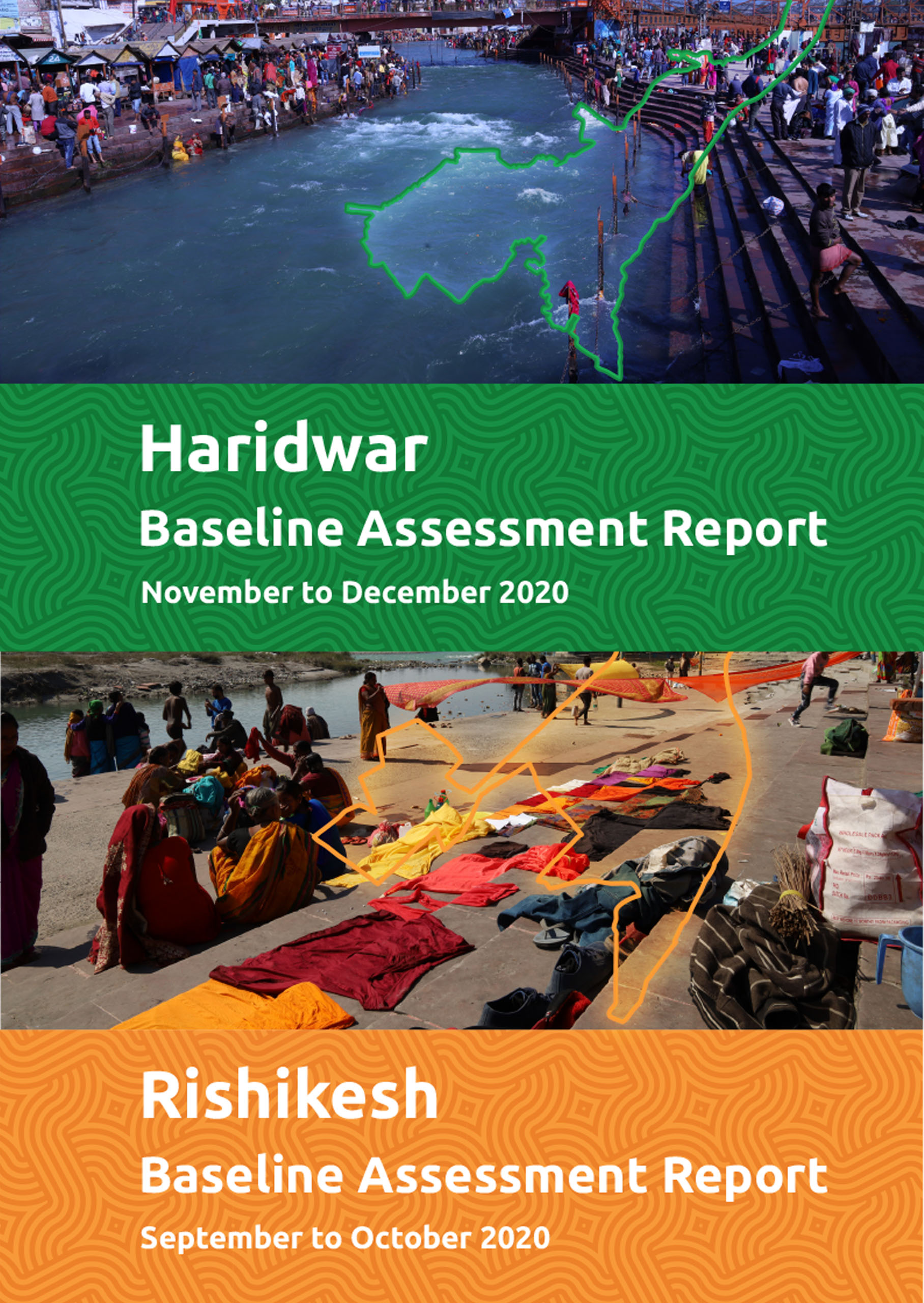
Baseline Assessment Study of Solid and Plastic Waste in Haridwar and Rishikesh
Within project Aviral – Reducing Plastic Waste in the Ganga, plastic waste entering the cities environments is reduced by strengthening an integrative and improved plastic waste management system in the two Ganga cities Haridwar and Rishikesh. The efforts also contribute to achieving the objectives of the flagship programs of the National Mission for Clean Ganga (Namami Gange) and the Clean India Mission (Swachh Bharat Mission). In order to sustainably enhance existing capacities, improve selected elements of the plastic waste value chain, promote innovations and implement awareness activities.
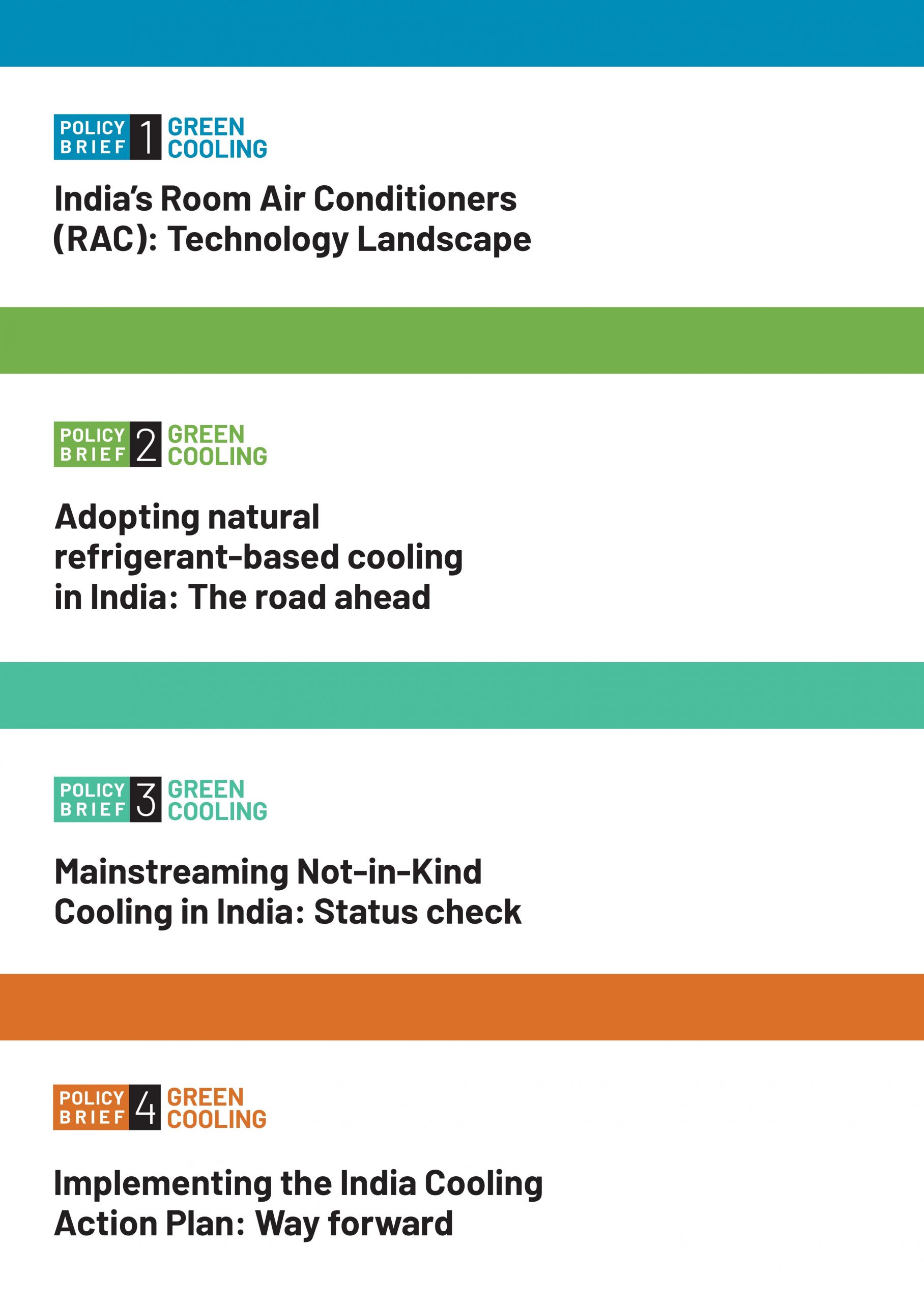
Green Cooling in India
- Policy Briefs
- Energy & Climate Change
- India's Room Air Conditioners (RAC): Technology Landscape
- Download
- Adopting natural refrigerant-based cooling in India: The road ahead
- Download
- Mainstreaming Not-in-Kind cooling in india: Status check
- Download
- Implementing the India cooling Action Plan: Way forward
- Download
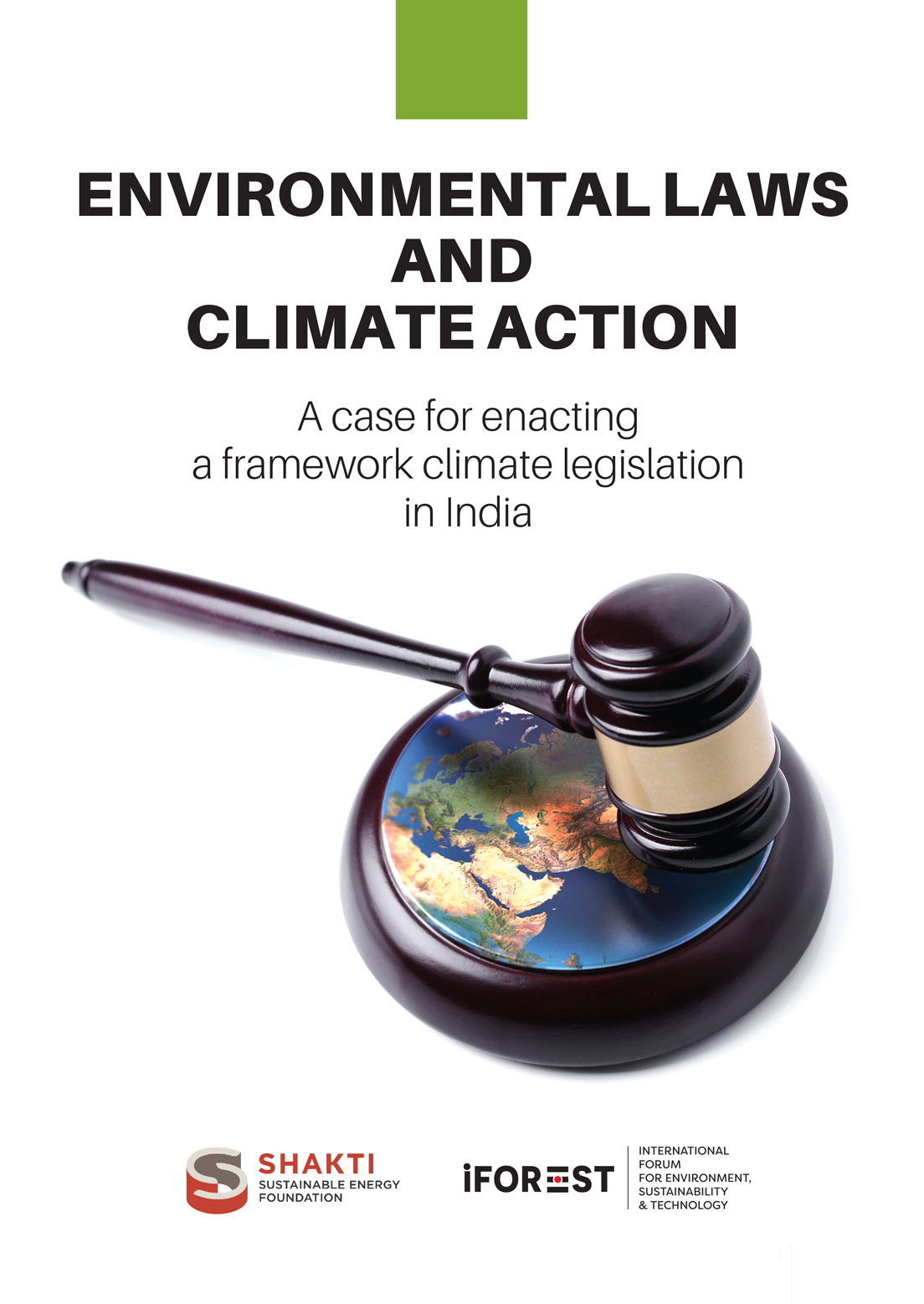
Environmental Laws and Climate Action: A case for enacting a framework climate legislation in India
- Report
- Energy & Climate Change
- Download
There is a growing debate on enacting a ‘framework climate legislation’ to enhance climate change mitigation and adaptation action. International treaties, such as the Paris Agreement, do not have an enforcement mechanism as those found in national laws; the absence of which can undermine climate action. Through a detailed review of India’s environmental laws, climate litigations and framework legislations in various countries, this report explores whether India needs a framework climate legislation, and the scope and contours of it.
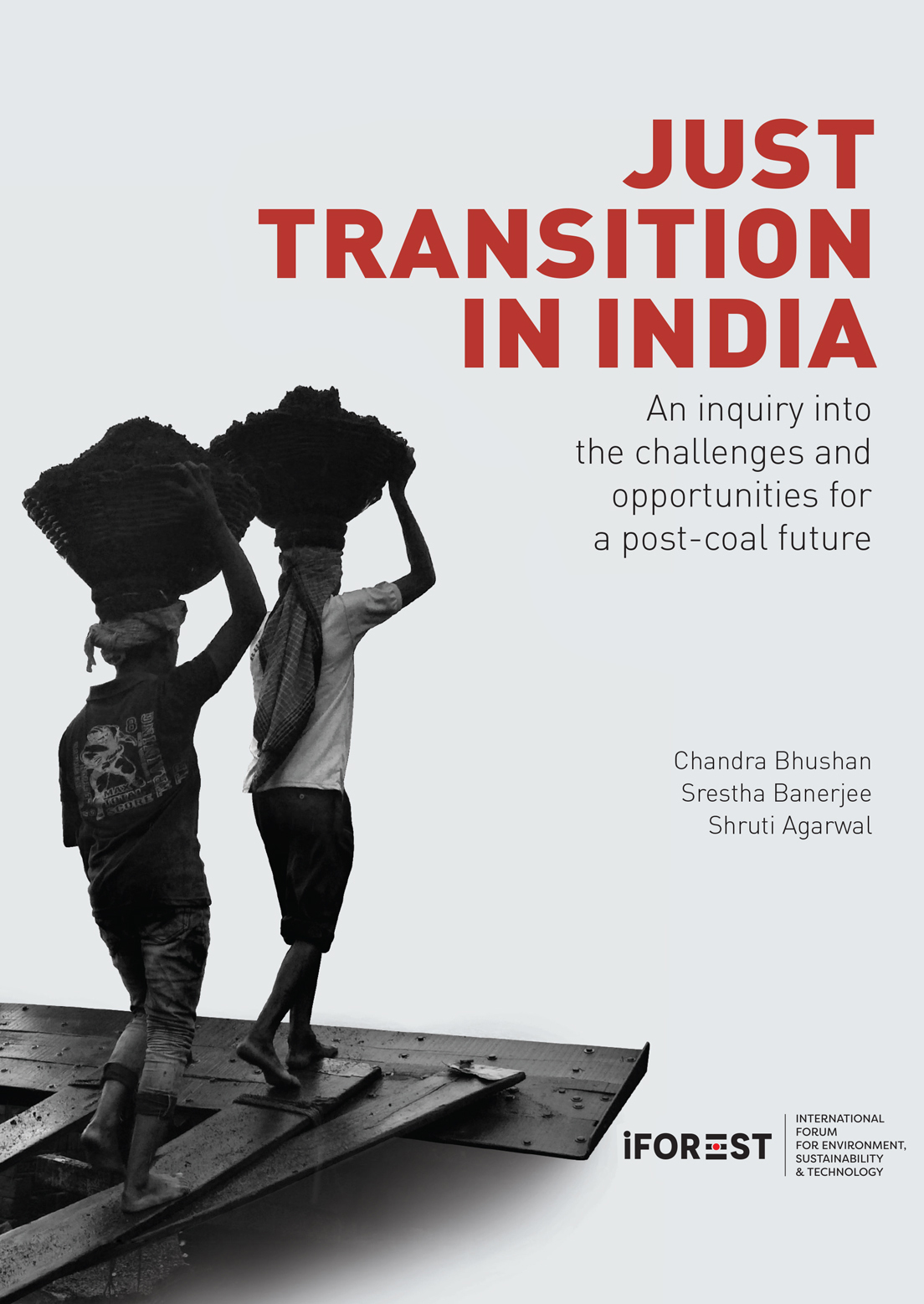
Just Transition in India: An inquiry into the challenges and opportunities of a post-coal future
This book aims to understand what just transition means for India, detailing the risks and opportunities of coal phase-out. It builds on an in-depth research of a top coal mining district of Jharkhand, where many coal mines are already closed. It also proposes what coal mining districts and governments should do to plan for a just transition.
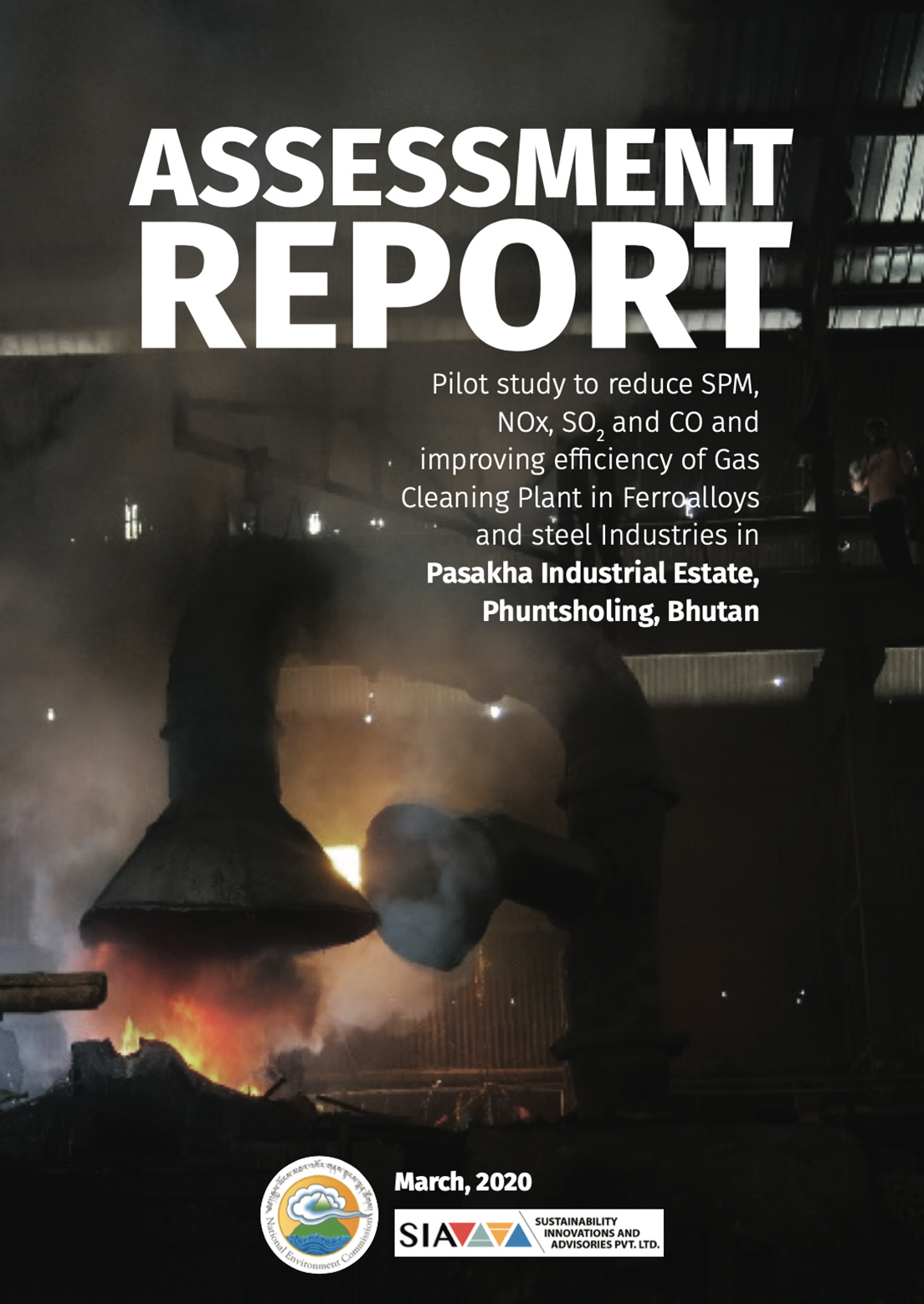
Assessment Report: Pasakha Industrial Estate, Phuntsholing, Bhutan
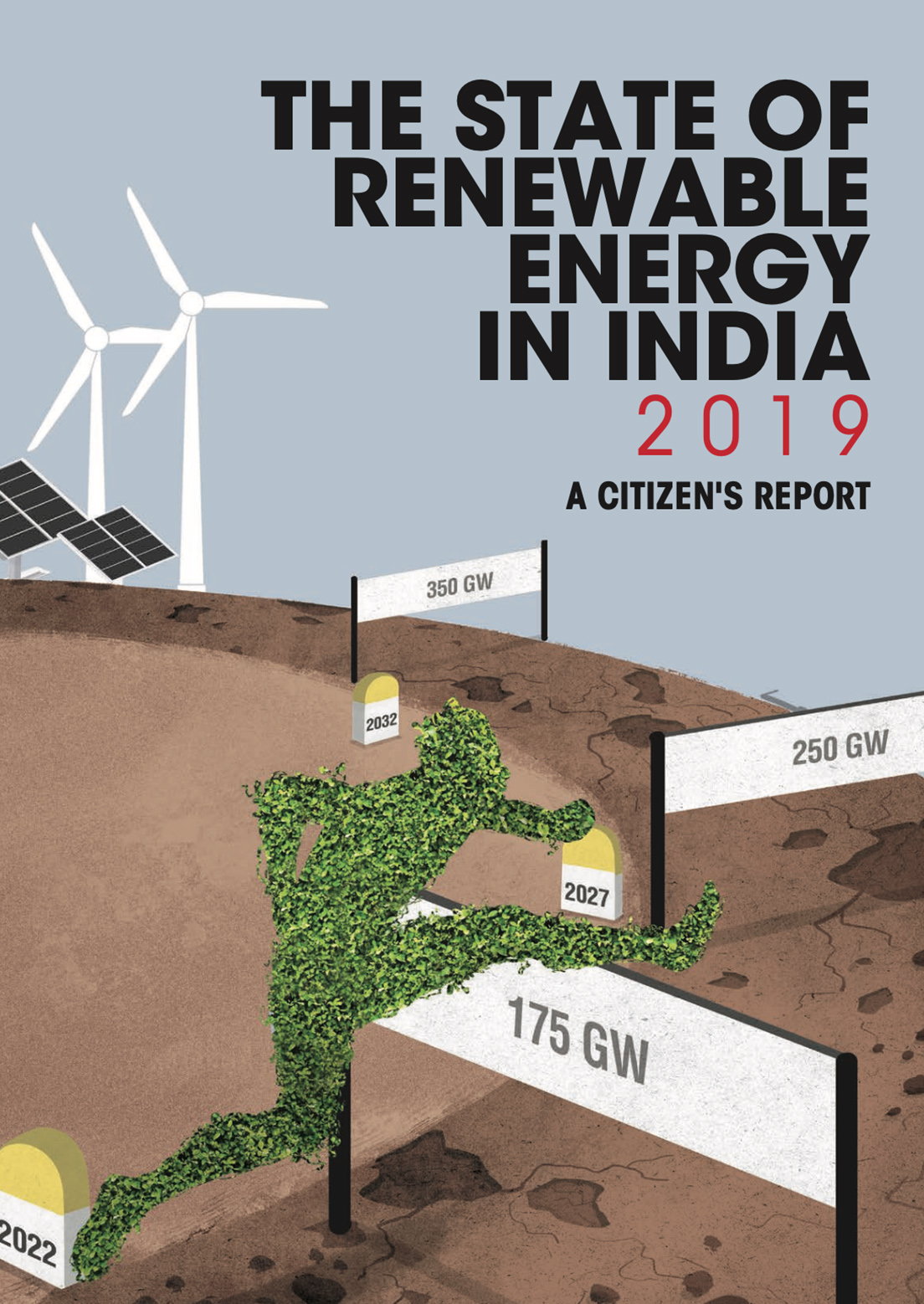
State of Renewable Energy in India: A Citizen's Report, 2019
- Report
- Energy & Climate Change
- Download
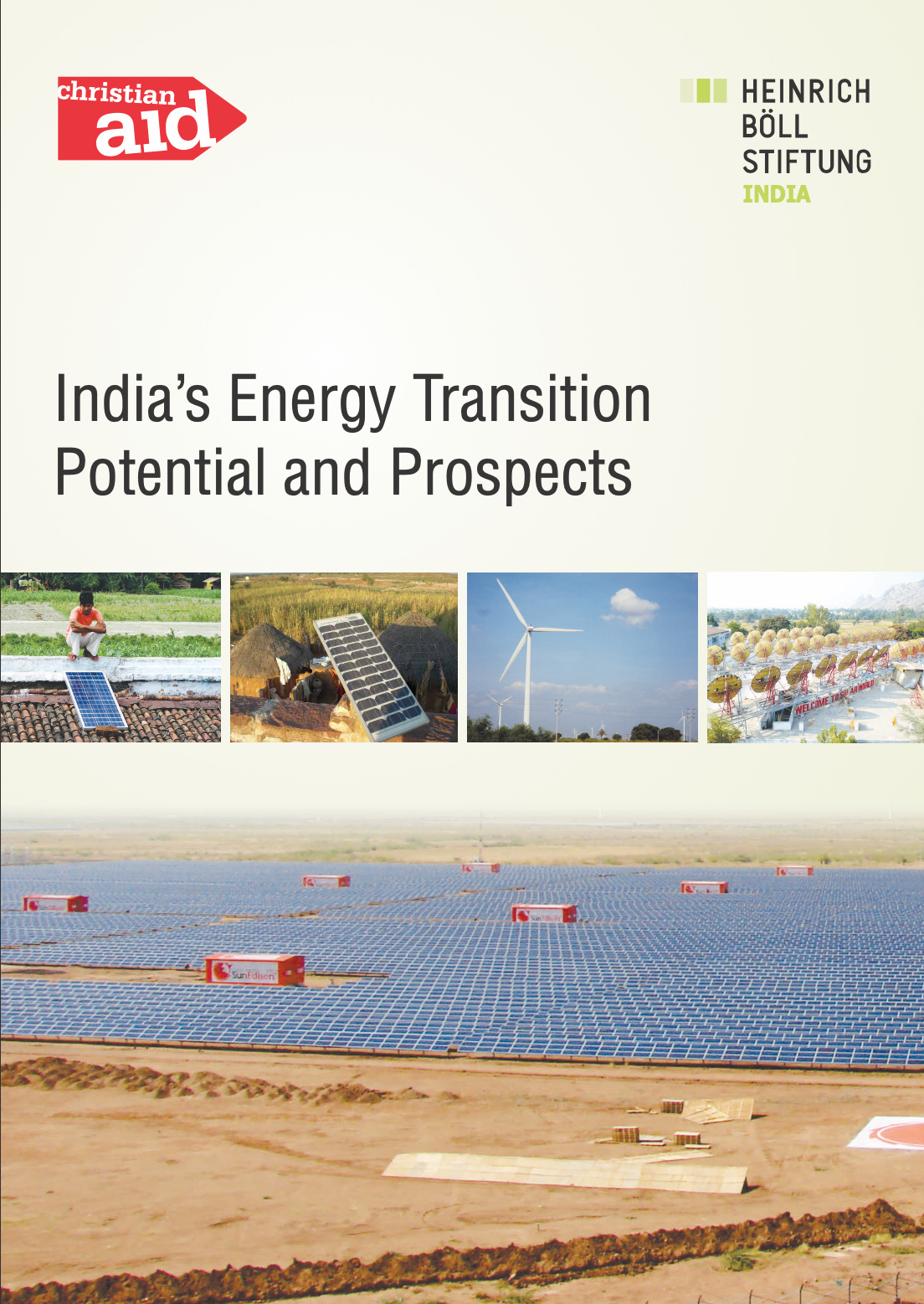
India’s Energy Transition: Potential and Prospects
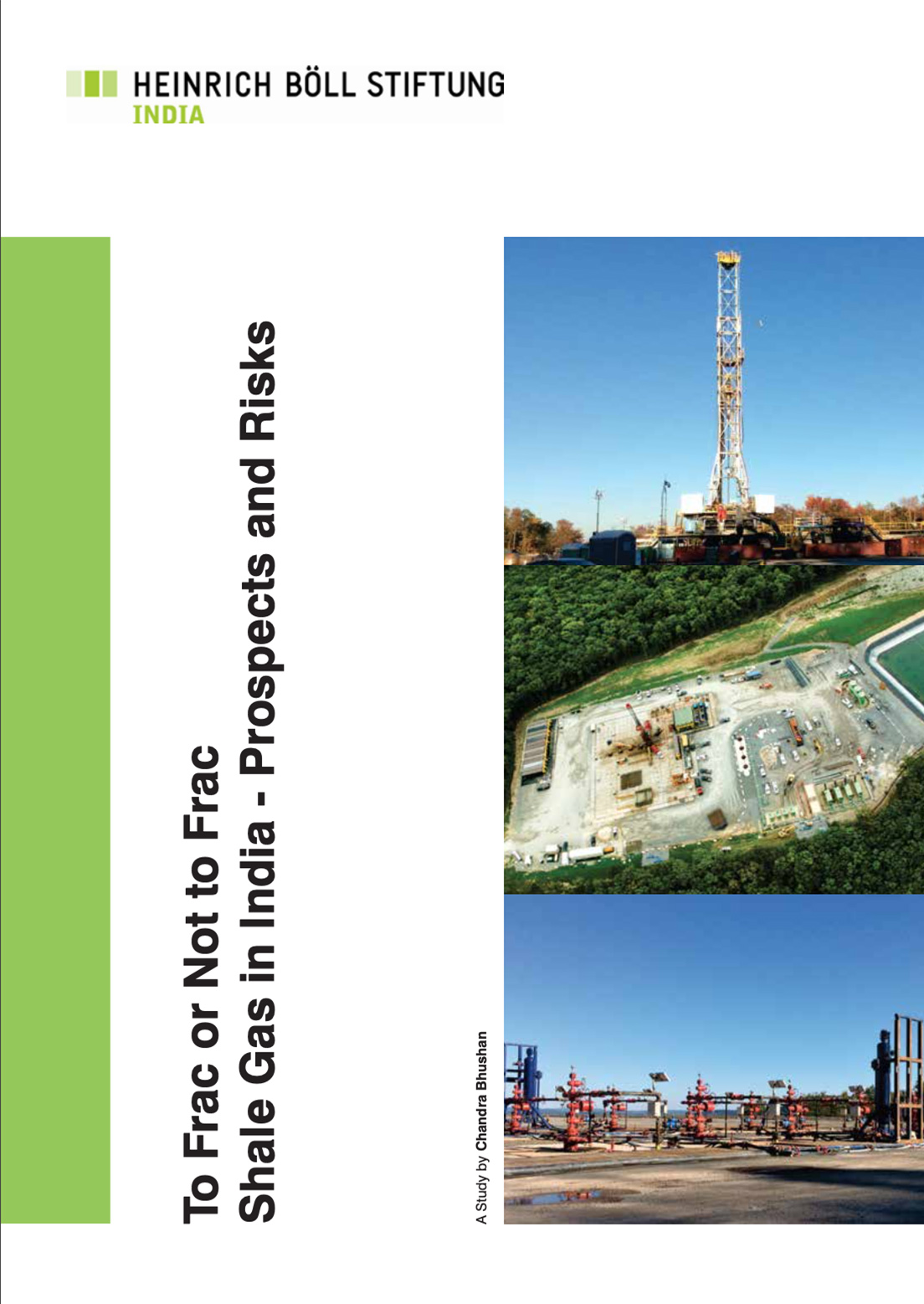
To Frac or Not to Frac: Shale Gas in India
- Report
- Energy & Climate Change
- Download
This report analyses the experience of shale gas development in the U.S. and provides an overview of potential environmental and social impacts and risks that the large-scale exploitation of shale gas would entail in India.
